UCD SCIENCE
UNDERGRADUATE COURSES ENTRY 2025
Science

Sustainability
Computer Science
Actuarial & Financial Studies











UNDERGRADUATE COURSES ENTRY 2025
Science

Sustainability
Computer Science
Actuarial & Financial Studies










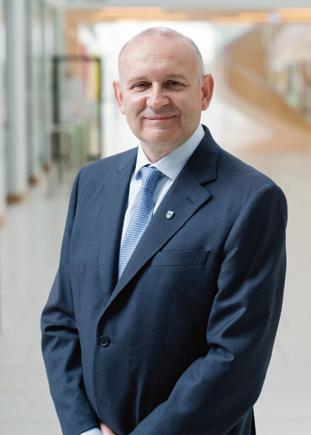
“UCD boasts the most innovative and diverse Science programme in the country, providing knowledge in disciplines encompassing biology, chemistry, physics, earth sciences, mathematics and computer science.”
University College Dublin has a long and proud history of education, research and high achievement. Set in the heart of the beautiful Belfield campus in south Dublin, the UCD O’Brien Centre for Science provides a vibrant and state-of-the-art centre of learning, welcoming students and staff from all corners of the world.
UCD boasts the most innovative and diverse Science programme in the country, providing knowledge in disciplines encompassing biology, chemistry, physics, earth sciences, mathematics and computer science. In addition, we offer a unique programme in Sustainability combining the disciplines of Science, Social Sciences and Business. Our academic staff are expert teachers and are highly reputed world-class researchers, and indeed our research interests and strengths inform our undergraduate and postgraduate degree courses.
UCD Science graduates are in great demand in Science and Science-related jobs both in Ireland and overseas, and an undergraduate degree in science lays strong foundations for a wide variety of careers.
The choice of university and course can be a daunting one, and this is something that we recognise at UCD. In order to ensure that our university and degree courses are the right fit for your needs, we encourage all prospective students to engage with our series of events and to feel free to contact us if you have any queries. No problem is too trivial for us in this important phase of your career.
We look forward to welcoming you to UCD.

Professor Jeremy Simpson Dean of Science
Non-EU
From August International Fairs: Meet us at a range Worldwide Events for 2024 of International events and fairs. Entry 2025 and Entry 2026 Onwards Visit www.ucd.ie/science/study/global/ Non-EU Applicants for details of upcoming fairs.
9 November UCD Open Day On-Campus Event for 2024 EU and Non-EU Applicants
4 June UCD Science, Sustainability, Actuarial On-Campus Event for Entry 2026 2025 & Financial Studies Summer School EU and non-EU Applicants
5 June UCD Computer Science Summer School On-Campus Event for Entry 2026 2025 EU and non-EU Applicants
7 January QQI-FET Pathways for Science, Virtual Event for 2025 Sustainability and Computer Science Entry 2025 EU Applicants
14 January UCD Science, Sustainability, Virtual Event for 2025 Computer Science, Actuarial Entry 2025 EU & Financial Studies And Non-EU Applicants
15 April UCD Science, Sustainability, Virtual Event for 2025 Computer Science, Actuarial Entry 2025 EU & Financial Studies And Non-EU Applicants
14 October UCD Maths Week TY Event Virtual Event for 2024 TY students
3 December UCD Physics TY Event Virtual Event for 2024 TY students
10 March UCD Biology & Environmental Virtual Event for 2025 Science TY Event TY students

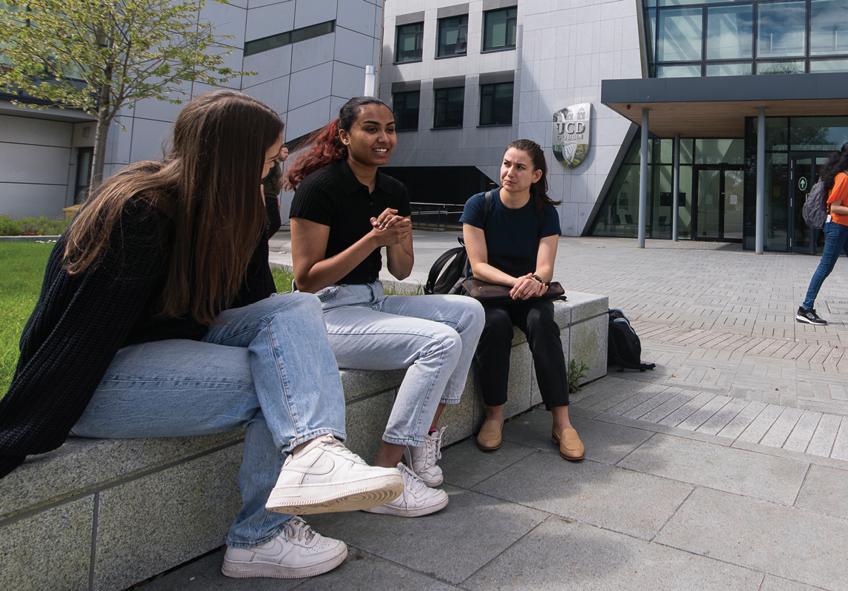
The Student Centre and the UCD Sport and Fitness complex are the hub of student life on campus. The facilities include a cinema, drama theatre, debating chamber, café, and social spaces.



UCD Science students will learn in state-of the-art labs, active learning environments, lecture theatres and classrooms in the UCD O’Brien Centre for Science.
The university experience is all about getting involved and getting active, trying something new, having fun and making some great friends and memories along the way. UCD's student societies are a great way to explore your interests or develop new interests. From arts and culture to science and social service, you can find the community that aligns with your passion.


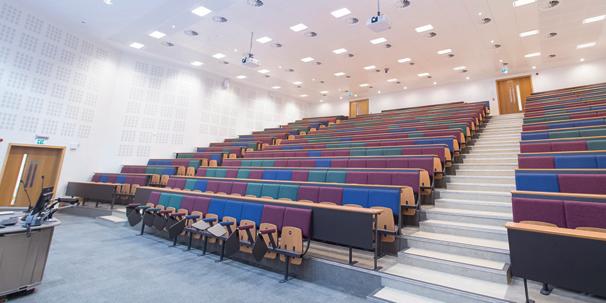


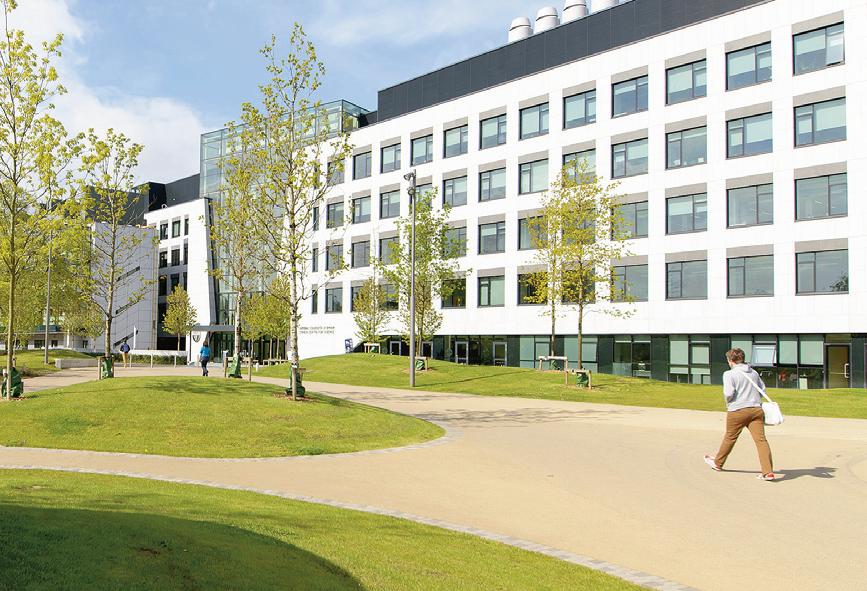
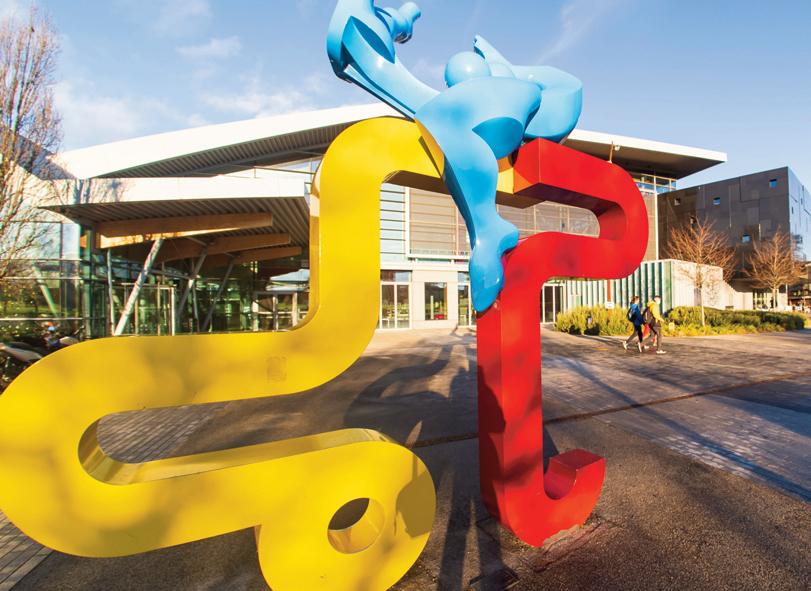
Our modern Sport and Fitness Centre has an extensive range of amenities, catering for students of all fitness levels, from casual gym-users to Olympic athletes. Facilities include a 50-metre swimming pool, gym, dance and spinning studios, sauna and jacuzzi, sports halls, squash courts, 17 natural grass pitches, and the National Hockey Stadium.
Staff in the Science Office are always available to assist students with any problems they encounter, whether academic or personal. There is also a Student Adviser along with many other support staff whose function is to ensure that you settle into university life as quickly and easily as possible.


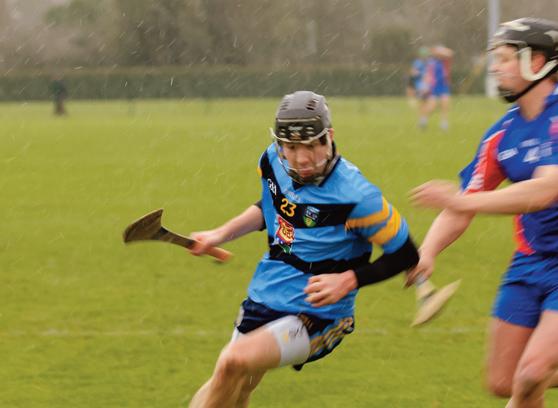


The Science course offers a flexible curriculum that allows you to focus on an area from first year or keep your options open and explore different subject areas. Each stream has a set number of compulsory modules that has been kept low to allow you to try out other subjects that you may not be familiar with or to deepen your interest in the areas that you wish to pursue in second year and on to degree level. Plenty of advice is available during the application process and when you arrive at UCD on the module combinations to study in first year.
7 Streams, 26 Degree Subjects
n Explore Multiple Streams
n Biological, Biomedical & Biomolecular Sciences
n Earth & Environmental Sciences
n Chemistry (includes Medicinal/Sustainable)
Students have the option to become Science and Maths teachers at post-primary level through Science via one of our Teaching Council of Ireland approved pathways.
Students who want to sample a number of degree options in First Year from different streams can choose Explore Multiple Streams. At the end of first year, the majority of students will pursue degree options from one stream in second year.
4 Year Honours BSc course
n Mathematics (includes Applied/Financial/Statistics)
n Physics (includes Theoretical/Astronomy & Space Science)
n Science, Mathematics & Education


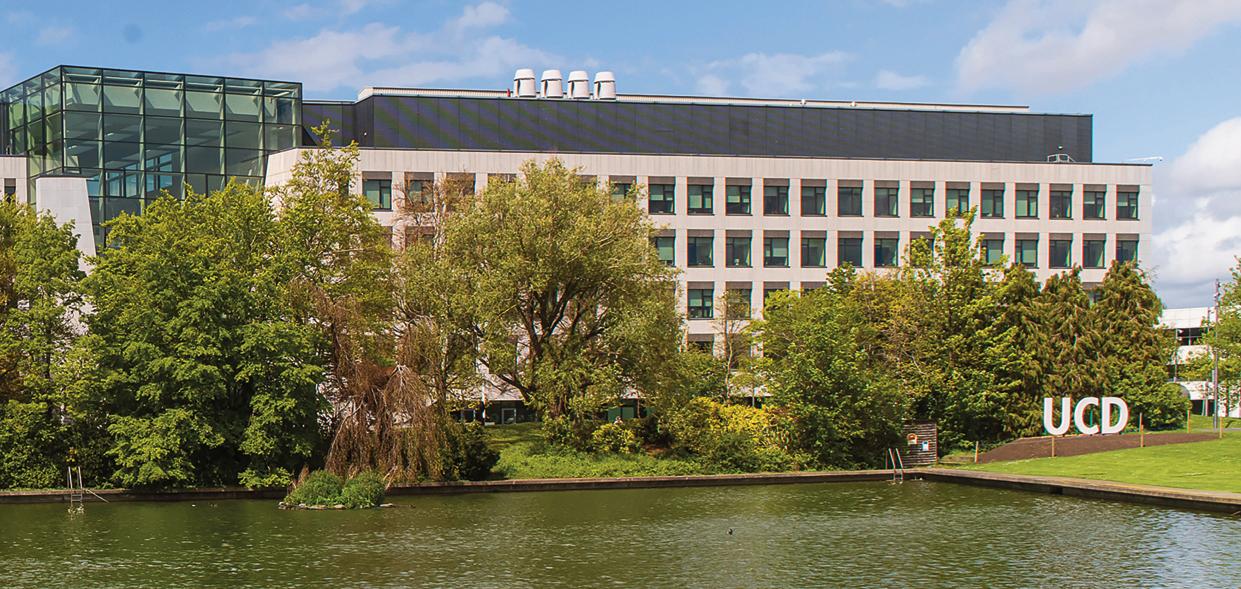
What do I study in first year?
A:
Students choose modules in order to meet the requirements for the degree subjects that interest them most. Each degree subject is part of a stream and each stream has a set number of compulsory modules you must take in first year in order to pursue a degree subject in second year.
What do I study in second, third and fourth year?
A:
In general, students have to decide on one stream to pursue in second year and will study two or more degree subjects from that stream. Limited degree subjects between different streams can be studied in second year. It is timetable dependent and not guaranteed. A list is not available as it can change each year. At the end of second year, students choose their degree subject. We do our best to ensure that students go on to study their top degree subject choice but degree subjects can be competitive. If a degree subject is oversubscribed, places are allocated on a competitive basis. As we offer a number of degree subjects in each stream, students have a number of similar degree subjects to choose from as their degree major.

Is Science a General Science degree?
No. The Science course is a Level 8 BSc Honours degree of four years. Students enter by a single route and graduate with a BSc Honours degree in one of 26 different subjects, for example, BSc Theoretical Physics, BSc Mathematics, BSc Chemistry.
Does common entry mean all students take a common first year?
Common entry Science does not mean that students study the same modules in first year. The advantage of the UCD Science course is that you can choose a stream in first year and focus your studies in that stream, such as Chemistry or Mathematics, or you can also keep your options open in first year through Explore Multiple Streams. The number of compulsory modules in first year for each stream has been kept low to allow you the option to try out other subjects that you may not be familiar with or to deepen your interest in the areas that you wish to pursue to degree level.


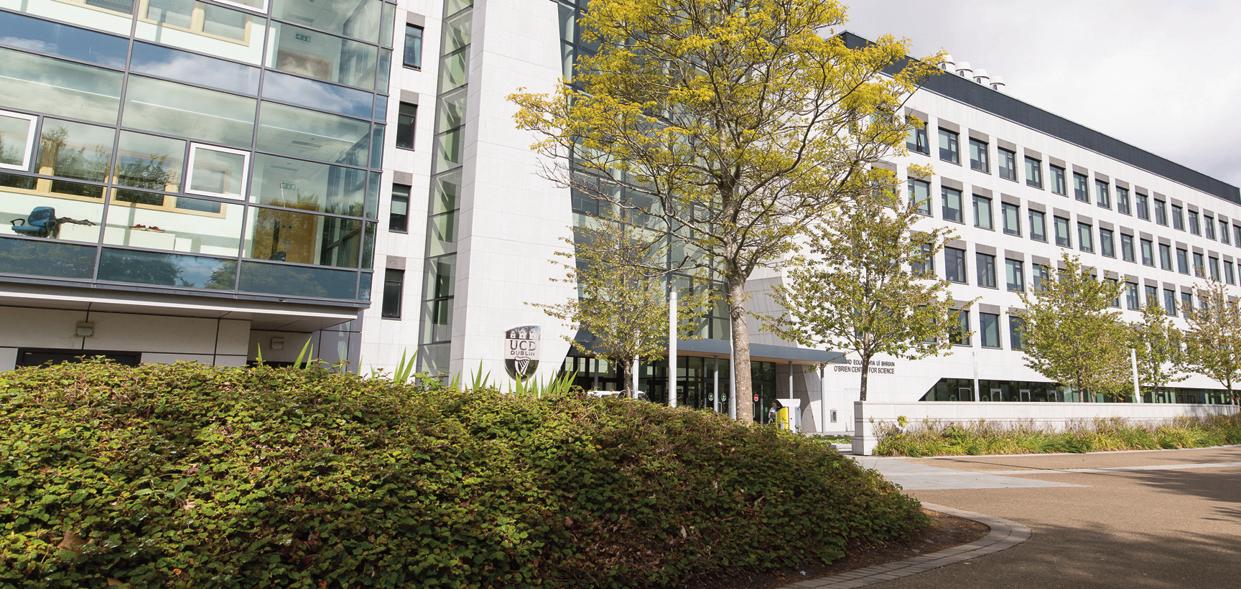
- Choose the modules to keep streams open which contain your preferred subject area(s).
- The Science course has a flexible curriculum that allows you to focus on an area from first year or keep your options open and explore different subject areas.
- Study a minimum of two subject areas depending on the modules you study in first year.
- At the end of second year, students choose their degree subject preferences.
- We do our best to ensure that students go on to study their top degree subject choice but degree subjects can be competitive. As we offer a number of degree subjects in each stream, students have a number of similar degree subjects to choose from as their degree subject. If a degree subject is oversubscribed, places are allocated on a competitive basis.
- Focus on your degree subject.
- Opportunities for Internships or Study Abroad.

- Refine your knowledge.
- Many subjects will include a research project which you complete in your final year.
We recommend that all incoming first year Science students read the Stage 1 Guide and UCD Science Student Handbook for information on the module combinations available in first year. Plenty of advice is available during the application process and when you arrive at UCD on the module combinations to study in first year.

In this degree subject, you will explore life at the molecular level. Students will develop practical skills in protein and DNA isolation and analysis; molecular biology techniques used in the pharmaceutical and biotechnology industries; and clinical tests such as immunoassays used in hospital laboratories.
Biochemistry & Molecular Biology is one of the degree subjects available through the Biological, Biomedical & Biomolecular Sciences stream in the common entry Science course. Students study similar modules for all degree subjects in the Biological, Biomedical & Biomolecular Sciences stream in first year and will study modules for a minimum of two degree subjects in second year. Students study their degree major in third and fourth year. This is a sample set of modules that a Biochemistry & Molecular Biology student could study each year in UCD. Students may also select option and elective modules throughout their degree.
YEAR 1
-Biology in Action
-Life on Earth
-Cell Biology and Genetics
-Biomedical Sciences
-The Basis of Organic and Biological Chemistry
-Mathematics for the Biological and Chemical Sciences
YEAR 2
-Biochemistry in Action
-Molecular Genetics and Biotechnology
-Biomolecular Laboratory Skills
-Biomolecular Sciences
-Chemistry for Biologists
YEAR 3
-Metabolism and Disease
-Biochemist’s Toolkit
-Advanced Cell Biology
-Cell Signalling
-Regulation of Gene Expression
-Molecular Basis of Disease
-Proteins and Enzymes
-Genomics and Proteomics
YEAR 4
-Biochemistry Research Project
-Biochemistry Career Skills
-Advanced Neurochemistry
-Advanced Cell Signalling
-Biochemical Research Strategies
-Protein Structure and Analysis
*Modules are subject to change each year and are not guaranteed by UCD. In general, students have to decide on one stream to pursue in second year and will study two or more degree subjects from that stream. We do our best to ensure that students go on to study their top degree subject choice but if a degree subject is oversubscribed, places are allocated on a competitive basis.
Graduates can find employment in pharmaceutical companies, biotechnology companies, forensic science laboratories, hospital and clinical laboratories, and food and beverage companies. Graduates are eligible to apply for a range of Masters programmes in Ireland and abroad, in areas such as biotechnology, biotherapeutics imaging and microscopy, and molecular medicine. Graduates can also pursue a PhD in universities in Ireland and abroad in areas such as medical research, drug development and biomedical science.



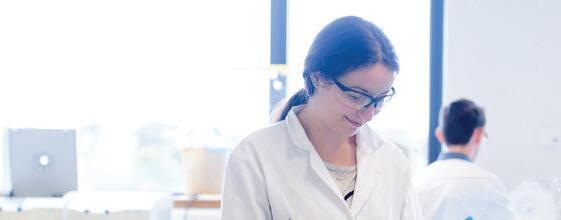



Sorcha
McGuinness, Student
I chose to pursue a degree in Biochemistry & Molecular Biology because I have always had a passion for science. It has enabled me to study chemistry in a practical and fascinating way through focusing on the chemical processes that occur within living organisms. During my time at UCD, I have had the opportunity to build strong relationships with my peers and become class representative for my course. The elective modules offered within this degree have helped me explore my interest in coding alongside biochemistry, allowing me to obtain the structured elective Introduction to Computer Science. I was drawn to UCD because of my desire to experience university life. As one of the largest urban campuses in Europe, with all amenities in one place, including a free student gym and beautiful parkland trails, it brought a sense of community and safety that I hadn’t experienced anywhere else before.
Students have an opportunity to undertake an industry research placement for 6 months commencing in the Summer following third year (i.e. June-December). Assessment is based on a thesis, oral presentations and a laboratory report.
Students in recent years have completed internships in companies such as MSD or in placements in hospital labs.
Placements are secured on a competitive basis and are subject to change each year.
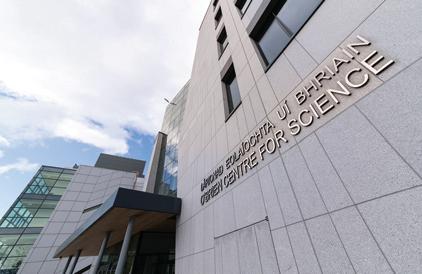


Cell & Molecular Biology is the study of cells and the molecules (DNA, RNA, proteins, lipids and carbohydrates) that combine to form them. The skills you learn will equip you to tackle important global challenges, such as understanding the molecular basis of diseases and innovating novel therapeutic approaches to combat them.
Cell & Molecular Biology is one of the degree subjects available through the Biological, Biomedical & Biomolecular Sciences stream in the common entry Science course. Students study similar modules for all degree subjects in the Biological, Biomedical & Biomolecular Sciences stream in first year and will study modules for a minimum of two degree subjects in second year. Students study their degree major in third and fourth year. This is a sample set of modules that a Cell & Molecular Biology student could study each year in UCD. Students may also select option and elective modules throughout their degree.
YEAR 1
-Biology in Action
-Life on Earth
-Cell Biology and Genetics
-Biomedical Sciences
-The Basis of Organic and Biological Chemistry
-Mathematics for the Biological and Chemical Sciences
YEAR 2
-Scientific Communication
-Principles of Cell and Molecular Biology
-Chemistry for Biologists
-Biomolecular Laboratory Skills
YEAR 3
-Advanced Cell Biology
-Hot Topics in Cell and Molecular Biology
-Genetics
-Regulation of Gene Expression
-Developmental Biology
-Cell Biology of Disease
-Plant Cell Biology
YEAR 4
-Cell Biology Research Project
-Programmed Cell Death
-Cell Signalling
-The RNA World
-Biological Imaging
-Human Genetics and Disease
*Modules are subject to change each year and are not guaranteed by UCD. In general, students have to decide on one stream to pursue in second year and will study two or more degree subjects from that stream. We do our best to ensure that students go on to study their top degree subject choice but if a degree subject is oversubscribed, places are allocated on a competitive basis.
Graduates in Cell & Molecular Biology can find employment in areas such as pharmaceutical and biotechnology industries, biomedical research, hospital and university laboratories, forensic science laboratories, and genetic counselling. Graduates can pursue MSc programmes in Biotechnology, Biotechnology with Business, Biotherapeutics, or apply for PhD programmes in cell signalling, membrane biology or genetics, in Ireland and abroad.
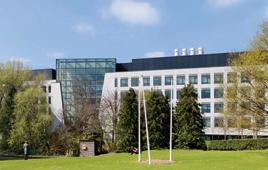


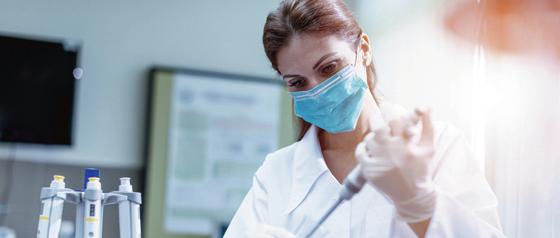



Georgie Xistris, Graduate
I am from Wisconsin, USA and came to UCD as the common entry course allowed me to explore my love of Science. With regular events and over a hundred clubs and societies, UCD has a thriving community. You will run into friendly faces no matter where you are on campus. I have recently graduated from Cell & Molecular Biology. In my final year, I wrote my thesis on urea protein transporters in a brain with Alzheimer’s Disease to characterise the disease pathology; a perfect example of how Cell & Molecular Biology delivers students with an extensive number of opportunities to undertake exciting research. I am currently a clinical laboratory scientist at a molecular diagnostics company based in the US. My primary duty is to detect if patient samples contain biomolecular markers of early colorectal cancer.
Students have the opportunity to complete a Professional Placement module worth 5 credits. This module provides students with an opportunity to undertake a placement in industry (6-10 weeks) in the summer following third year.
Students in recent years have completed internships in the Royal College of Surgeons Ireland. Students have also completed research placements in UCD labs.
Placements are secured on a competitive basis and are subject to change each year.




Environmental Biology focuses on the biological aspects of environmental science. It equips students with a strong background in ecology and its application to environmental assessment and management. You will also develop practical skills in field-based sampling of plants and animals in their natural environments in Ireland, Spain and Costa Rica.
Environmental Biology is one of the degree subjects available through either the Biological, Biomedical & Biomolecular Sciences or Earth & Environmental Sciences streams in the common entry Science course. Students study similar modules for all degree subjects in the Biological, Biomedical & Biomolecular Sciences stream in first year and will study modules for a minimum of two degree subjects in second year. Students study their degree major in third and fourth year. This is a sample set of modules that a Environmental Biology student could study each year in UCD. Students may also select option and elective modules throughout their degree.
YEAR 1
-Biology in Action
-Life on Earth
-Cell Biology and Genetics
-Biomedical Sciences
-The Basis of Organic and Biological Chemistry
-Mathematics for the Biological and Chemical Sciences
YEAR 2
-Principles of Environmental Biology and Ecology
-Scientific Communication
-Evolutionary Biology
-Climate Change and Agriculture
-Forests, Climate and Carbon
YEAR 3
- Systems Ecology
- Biogeography and Field Biology
- Diversity of Vertebrates
- Diversity of Plant Form and Function
- Ecological and Environmental Microbiology
- Wildlife and Fisheries Management
YEAR 4
- Environmental Biology Research Project
- Marine Community Ecology
- Bioassessment of Freshwaters
- Biological Invasions
- Ecological Modelling and QGIS
- Foodborne Pathogens
- Tropical Field Ecology
*Modules are subject to change each year and are not guaranteed by UCD. In general, students have to decide on one stream to pursue in second year and will study two or more degree subjects from that stream. We do our best to ensure that students go on to study their top degree subject choice but if a degree subject is oversubscribed, places are allocated on a competitive basis.


Sadhbh McCarrick, Graduate
I had the opportunity to travel to the Costa Rican rainforest for a two-week field trip with my classmates and lecturers. The trip to the rainforest allowed us to put the theory we had learned into practice. We had the chance to advance our skills in field sampling, monitoring and data handling and we also got to live in one of the most biodiverse ecosystems in the world with pumas, monkeys, parrots, giant butterflies and snakes. I was a member of the Choral Scholars of UCD, as well as President and Co-Founder of UCD Women+ in STEM Society. Being a Choral Scholar has been fantastic because I have been able to earn academic credits, record CDs and travel to New York to sing in Carnegie Hall!
Students have the opportunity to complete a Professional Placement module worth 5 credits. This module provides students with an opportunity to undertake a placement in industry (6-10 weeks) in the summer following third year.
Students in recent years have completed internships in Teagasc or in research labs in UCD.
Placements are secured on a competitive basis and are subject to change each year.
Environmental Biologists pursue a wide range of careers such as fisheries managers, environmental consultants, habitat ecologists, pollution biologists, wildlife and conservation officers, national park supervisors, technical and scientific officers, and university researchers and professors. MSc programmes that can be pursued by graduates include Applied Environmental Science, World Heritage Management, Environmental Sustainability and Global Change: Ecosystem Science and Policy. Graduates can pursue a PhD in universities in Ireland or abroad in areas such as ecology, microbiology, fisheries, conservation biology, environmental management and global change.




www.ucd.ie/science/study/prospectiveundergraduatestudents




Genetics is the scientific study of heredity – how information is passed from one generation to the next. You will study developing new areas, such as personal genomics, which uses DNA sequence to determine health and ancestry.
Genetics is one of the degree subjects available through the Biological, Biomedical & Biomolecular Sciences stream in the common entry Science course. Students study similar modules for all degree subjects in the Biological, Biomedical & Biomolecular Sciences stream in first year and will study modules for a minimum of two degree subjects in second year. Students study their degree major in third and fourth year. This is a sample set of modules that a Genetics student could study each year in UCD. Students may also select option and elective modules throughout their degree.
YEAR 1
-Biology in Action
-Life on Earth
-Cell Biology and Genetics
-Biomedical Sciences
-The Basis of Organic and Biological Chemistry
-Mathematics for the Biological and Chemical Sciences
YEAR 2
-Chemistry for Biologists
-Molecular Genetics and Biotechnology
-Principles of Genetics
-Biomolecular Sciences
-Biomolecular Laboratory Skills
YEAR 3
-Regulation of Gene Expression
-Bioinformatics
-Genome Structure
-Genetics
-Animal and Plant Development
-Genomics and Proteomics
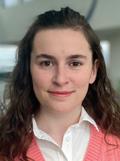
Grace Pender, Graduate
I have had a lifelong passion for science, so choosing to study Science at UCD was the perfect choice for me. Genetics was by far my favourite subject because it is such a fundamental area of study for all of biology. Modules offered to you in Genetics range from studying microbial genetics, evolution and phylogenetics, human genetics and disease, and my personal favourite, plant genetics. Another aspect of this course that was very appealing to me is that you can do a mix of “wet lab” practical work, and bioinformatics, so you develop a wide range of up-to-date skills for further research or industry work. I am now pursuing a PhD in plant genetics in UCD, and I use the skills and knowledge I obtained from my undergraduate degree every day.
YEAR 4
-Genetics Research Project
-Genetics Disease and Behaviour
-Gene Regulation
-Systems Microbiology
-Model Organism Genetics
*Modules are subject to change each year and are not guaranteed by UCD. In general, students have to decide on one stream to pursue in second year and will study two or more degree subjects from that stream. We do our best to ensure that students go on to study their top degree subject choice but if a degree subject is oversubscribed, places are allocated on a competitive basis.
Most Genetics graduates work in hospital laboratories, biotechnology, pharmaceutical and genomics companies, forensic science laboratories, agribiotech and horticulture companies, and food and drink companies. Graduates can pursue MSc courses in the areas such as Biotechnology, Biotechnology & Business and Biotherapeutics. Graduates can pursue a PhD in universities in Ireland or abroad in areas as diverse biotechnology, cell biology, biomedical and health science and bioinformatics.




Students have an opportunity to undertake an industry research placement for 6 months commencing in the Summer following third year (i.e. June-December). Assessment is based on a thesis, oral presentations and a laboratory report.
Students in recent years have completed internships in Teagasc and the European Molecular Biology Laboratory.
Placements are secured on a competitive basis and are subject to change each year.




Microbiology is the study of microscopic organisms known as micro-organisms or microbes. Microbes play a key role in every facet of life on this planet.
Microbiology is one of the degree subjects available through the Biological, Biomedical & Biomolecular Sciences stream in the common entry Science course. Students study similar modules for all degree subjects in the Biological, Biomedical & Biomolecular Sciences stream in first year and will study modules for a minimum of two degree subjects in second year. Students study their degree major in third and fourth year. This is a sample set of modules that a Microbiology student could study each year in UCD. Students may also select option and elective modules throughout their degree.
-Biology in Action
-Life on Earth
-Cell Biology and Genetics
-Biomedical Sciences
-The Basis of Organic and Biological Chemistry
-Mathematics for the Biological and Chemical Sciences
YEAR 2
-Chemistry for Biologists
-Molecular Genetics and Biotechnology
-Biomolecular Laboratory Skills
-Biomolecular Sciences
-Microbiology in Medicine, Biotechnology and the Environmentent
YEAR 3
-Regulation of Gene Expression
-Microbial Cell Factory
-Applied Microbiology
-Microbial Diversity and Growth
-Microbial Physiology
-Medical Microbiology
YEAR 4
-Microbiology Research Project/Internship
-Ecological and Environmental Microbiology
-Systems Microbiology
-Foodborne Pathogens
-Microbial Pathogenicity
-Bioprocessing
-Enzyme Technology and Protein Engineering
*Modules are subject to change each year and are not guaranteed by UCD. In general, students have to decide on one stream to pursue in second year and will study two or more degree subjects from that stream. We do our best to ensure that students go on to study their top degree subject choice but if a degree subject is oversubscribed, places are allocated on a competitive basis.
Microbiologists are employed in the healthcare, pharmaceutical and food-related industries, hospitals and veterinary hospitals and related laboratories. They also find work in government agencies such as the Environmental Protection Agency where they are involved in research and development, process design and control, management and quality control. Graduates can pursue graduate taught courses such as MSc Biotechnology, MSc Biotechnology & Business, MSc Environmental Management, MSc Regulatory Affairs & Toxicology, MSc Plant Biology & Biotechnology and MSc Biotherapeutics. Graduates can pursue a PhD in universities in Ireland or abroad in areas as diverse as biotechnology, environmental biology, medical and veterinary sciences.




Jaffer Abdulkarim, Graduate
After my first Microbiology class, I was absolutely enthralled. I knew straight away that was what I wanted to do. Microbiology is such a vast and expanding field and has a little bit of everything in there and I could not be happier that I chose it. I had the opportunity in my final year to carry out a research project, supervised by some of UCD’s best scientists, on bioplastic producing bacteria and it was the highlight of my degree. It was a great way to put all the lab skills and techniques I had learned into practice and produce actual research. After I graduated, I started an MSc in Biotechnology and Business and am I looking forward to working in the biotechnology industry.
Students have an opportunity to undertake an industry research placement for 6 months commencing in the Summer following third year (i.e. June-December). Assessment is based on a thesis, oral presentations and a laboratory report.
Students in recent years have completed internships in Department of Agriculture Food and Marine, APC Ltd, and Sanofi.
Placements are secured on a competitive basis and are subject to change each year.
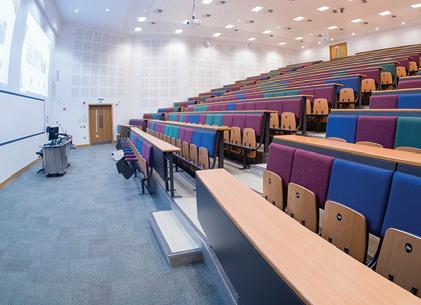

www.ucd.ie/science/study/prospectiveundergraduatestudents



Neuroscience is the study of the nervous system, directed towards understanding how cells within the nervous system interact with each other to form the brain and regulate body functions, human behaviour, memory, emotions and consciousness.
Neuroscience is one of the degree subjects available through the Biological, Biomedical & Biomolecular Sciences stream in the common entry Science course. Students study similar modules for all degree subjects in the Biological, Biomedical & Biomolecular Sciences stream in first year and will study modules for a minimum of two degree subjects in second year. Students study their degree major in third and fourth year. This is a sample set of modules that a Neuroscience student could study each year in UCD. Students may also select option and elective modules throughout their degree.
YEAR 1
-Biology in Action
-Life on Earth
-Cell Biology and Genetics
-Biomedical Sciences
-The Basis of Organic and Biological Chemistry
-Mathematics for the Biological and Chemical Sciences
YEAR 2
-Chemistry for Biologists
-Molecular Genetics and Biotechnology
-Biomolecular Laboratory Skills
-Biomolecular Sciences
-Principles of Neuroscience
YEAR 3
-Receptor-Mediated Cell Signalling
-Pharmacology of Neurodegenerative and Psychiatric Illness
-Nervous System Development
-Membrane Biology
-Data Modelling for Science
-Sensory Neuroscience
-Development and Advanced Pharmacology of the Nervous System
YEAR 4
-Neuroscience Research Project
-Synaptic Plasticity
-Advanced Topics in Neural Development
-Advanced Neuropharmacology
-Advanced Neurochemistry
-Molecular Neuroimmunology
*Modules are subject to change each year and are not guaranteed by UCD. In general, students have to decide on one stream to pursue in second year and will study two or more degree subjects from that stream. We do our best to ensure that students go on to study their top degree subject choice but if a degree subject is oversubscribed, places are allocated on a competitive basis.
As a Neuroscience graduate, you will have the opportunity to obtain employment in biotechnology and pharmaceutical companies, medical research, drug development and clinical trials; hospital and university laboratories, Neuroscience research institutes, and government agencies. Graduates can pursue graduate taught courses such as MSc Biotechnology, MSc Biotechnology & Business, MSc Biotherapeutics or MSc Biotherapeutics & Business. Graduates can pursue a PhD in universities in Ireland or abroad in Neuroscience or in areas as diverse as biotechnology, cell biology, biomedical and health science.





Jodie Bermingham, Graduate
UCD Science allowed me tailor my degree to encompass all the aspects of science I needed in order to succeed while keeping me intrigued and excited along the way. In third year, I was lucky to partake in the Erasmus Programme at the University of Nottingham, which gave me a different insight into the scope of neuroscience and the opportunities it presents. UCD offers multiple opportunities to travel and learn. This highlights their dedication to offering the best possible education and to encourage us to develop as a person. In addition, I had the absolute privilege of doing a 6-month thesis project in The Max Planck Institute for Brain Research, which allowed me to work as a real scientist in a lab, something I see myself doing in the future.
Students have an opportunity to undertake an industry research placement for 6 months commencing in the Summer following third year (i.e. June-December). Assessment is based on a thesis, oral presentations and a laboratory report.
Students in recent years have completed internships at the Max Planck Institute, Ulysses Neuroscience and MSD.
Placements are secured on a competitive basis and are subject to change each year.




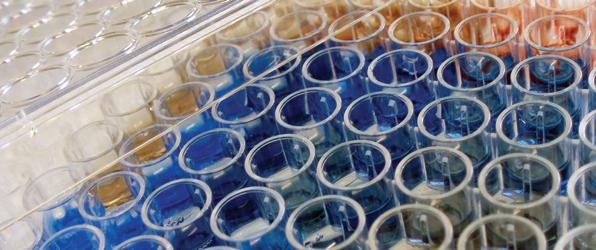
Pharmacology is the scientific study of drugs and their action on biological systems, ranging from genes and cells up to tissues and even human populations.
Pharmacology is one of the degree subjects available through the Biological, Biomedical & Biomolecular Sciences stream in the common entry Science course. Students study similar modules for all degree subjects in the Biological, Biomedical & Biomolecular Sciences stream in first year and will study modules for a minimum of two degree subjects in second year. Students study their degree major in third and fourth year. This is a sample set of modules that a Pharmacology student could study each year in UCD. Students may also select option and elective modules throughout their degree.
YEAR 1
-Biology in Action
-Life on Earth
-Cell Biology and Genetics
-Biomedical Sciences
-The Basis of Organic and Biological Chemistry
-Mathematics for the Biological and Chemical Sciences
YEAR 2
-Chemistry for Biologists
-Molecular Genetics and Biotechnology
-Biomolecular Sciences
-Biomolecular Laboratory Skills
-Pharmacology: Biomedical Science of Drugs
YEAR 3
-Receptor-Mediated Cell Signalling
-Data Modelling for Science
-Endocrine, Renal and Reproductive Pharmacology
-Chemotherapeutic agents
-Pharmacology of Neurodegenerative and Psychiatric Illness
-Development and Advanced Pharmacology of the Nervous System
YEAR 4
-Pharmacology Research Project
-Advanced Neuropharmacology
-Adv. Cardiovascular Pharmacology
-Drug Discovery and Development
-Advanced Cancer Biology and Pharmacology
-Emerging Therapies
-Advanced Renal Pharmacology
*Modules are subject to change each year and are not guaranteed by UCD. In general, students have to decide on one stream to pursue in second year and will study two or more degree subjects from that stream. We do our best to ensure that students go on to study their top degree subject choice but if a degree subject is oversubscribed, places are allocated on a competitive basis.
Career opportunities for Pharmacology graduates include working in pharmaceutical companies, drug regulatory bodies such as the Health Products Regulatory Authority, the biotechnology sector, chemical safety and toxicology. Graduates can pursue graduate taught courses such as MSc Biotechnology, MSc Biotechnology & Business, MSc Regulatory Affairs & Toxicology, and MSc Biotherapeutics. Graduates can pursue a PhD in diverse aspects of Pharmacology and Biomedical Science.




Fatima Butt, Graduate
Pharmacology is a prominent and distinguished discipline in the realm of biomedical research, offering an interactive and practical field of study. Neuropharmacology and the drug development pipeline are two key disciplines that have always fascinated me, and as part of my final year research project, I had the opportunity to conduct my own research in epilepsy, as well as pursue an internship at Conway Institute in third year within the same area. After I graduated, I pursued an MSc Biotechnology & Business, furthering my interest in the business side of pharmaceuticals. I hope to work in clinical trials involving neurodegenerative and neuropsychiatric disorders in the near future.
Students have an opportunity to undertake an industry research placement for 6 months commencing in the Summer following third year (i.e. June-December). Assessment is based on a thesis, oral presentations and a laboratory report.
Students in recent years have completed internships in Teva Pharmaceuticals, Pfizer and Alexion.
Placements are secured on a competitive basis and are subject to change each year.





Physiology is an area of biology related to how the human body works. Physiologists are interested in how the cells and organs of the body operate and how their incredible array of processes co-operate to enable our bodies to function under normal and challenging circumstances.
Physiology is one of the degree subjects available through the Biological, Biomedical & Biomolecular Sciences stream in the common entry Science course. Students study similar modules for all degree subjects in the Biological, Biomedical & Biomolecular Sciences stream in first year and will study modules for a minimum of two degree subjects in second year. Students study their degree major in third and fourth year. This is a sample set of modules that a Physiology student could study each year in UCD. Students may also select option and elective modules throughout their degree.
YEAR 1
-Biology in Action
-Life on Earth
-Cell Biology and Genetics
-Biomedical Sciences
-The Basis of Organic and Biological Chemistry
-Mathematics for the Biological and Chemical Sciences
YEAR 2
-Chemistry for Biologists
-Molecular Genetics and Biotechnology
-Biomolecular Laboratory Skills
-Introduction to Physiology: Cells and Tissues
-Organs and Systems Physiology
YEAR 3
-Cardiovascular Physiology
-Respiratory Physiology
-Digestion, Absorption and Excretion
-The Brain and Motor Control
-Endocrine/Reproductive Physiology
-Experimental Physiology
-Biostatistics
YEAR 4
-Fundamentals of Physiological Research
-Physiology Journal Club
-Adaptation to Hypoxia
-Brain Disorders
-Physiological Genomics
-The Physiology of Disease
-Physiology Research Project
*Modules are subject to change each year and are not guaranteed by UCD. In general, students have to decide on one stream to pursue in second year and will study two or more degree subjects from that stream. We do our best to ensure that students go on to study their top degree subject choice but if a degree subject is oversubscribed, places are allocated on a competitive basis.
Physiology graduates go on to establish careers in areas such as biomedical research in the university system or other government run operations, pharmaceutical industry based research and development, clinical trials, and pharmaceutical industry sales. Students can pursue a Taught Masters or Research Masters in universities in Ireland or abroad in any physiology discipline or a diverse range of medical, healthcare or other biological areas. Graduates can pursue a PhD in universities in Ireland or abroad in any physiological discipline or a diverse range of medical or other biological areas.




Celine Camon, Graduate
I am so glad I chose Physiology, as the level of academic teaching was outstanding and I loved learning how various systems of the body worked. My final year project was based on the inflammatory responses of spinal cord injury. Following my graduation, I worked in the National Virus Reference Laboratory. I am now studying for a PhD at the University of Otago in New Zealand, focusing on signalling pathways of oestrogens in the brain. UCD offered a whirlwind of opportunities, which allowed me to flourish. I was a Student Ambassador, Peer Mentor and served on committees like An Cumann Gaelach. I also spent two summers in Tanzania with UCD Volunteers Overseas.
Students have the opportunity to complete a Professional Placement module worth 5 credits. This module provides students with an opportunity to undertake a placement in industry (6-10 weeks) in the summer following third Year.
Students have also completed research projects as part of the UCD School of Medicine Student Summer Research Awards competition.




Plant Biology is the scientific study of plants, fungi and algae. Plants are vital for supporting and maintaining the atmospheric and environmental conditions required for all life on earth.
Plant Biology is one of the degree subjects available through the Biological, Biomedical & Biomolecular Sciences stream in the common entry Science course. Students study similar modules for all degree subjects in the Biological, Biomedical & Biomolecular Sciences stream in first year and will study modules for a minimum of two degree subjects in second year. Students study their degree major in third and fourth year. This is a sample set of modules that a Plant Biology student could study each year in UCD. Students may also select option and elective modules throughout their degree.
YEAR 1
-Biology in Action
-Life on Earth
-Cell Biology & Genetics
-Biomedical Sciences
-The Basis of Organic and Biological Chemistry
-Mathematics for the Biological and Chemical Sciences
YEAR 2
-Chemistry for Biologists
-Scientific Communication
-Principles of Plant Biology
-Biomolecular Lab Skills
-Principles of Cell and Molecular Biology
YEAR 3
-Plant Diseases
-Plant Form and Function
-Plant Biotechnology and Entrepreneurship
-Experimental Plant Physiology
-Plant Cell Biology
-Working with Biological Data
YEAR 4
-Plant Biology Research Project
-Biology and Ecology of Coastal Wetlands
-Environmental Impact Assessment
-Developmental Plant Genetics
-Cell Signalling in Plants
-Plants and Stress
-Plant Phenotyping
*Modules are subject to change each year and are not guaranteed by UCD. In general, students have to decide on one stream to pursue in second year and will study two or more degree subjects from that stream. We do our best to ensure that students go on to study their top degree subject choice but if a degree subject is oversubscribed, places are allocated on a competitive basis.
Plant Biology graduates have obtained positions as plant and environmental scientists, pollution biologists, molecular geneticists and cell biologists, agronomists, horticulturists, foresters, park rangers, environmental consultants and heritage officers. Graduates can pursue graduate taught courses such as MSc Applied Environmental Science, MSc World Heritage Management and MSc Plant Biology & Biotechnology. Graduates can pursue a PhD in universities in Ireland or abroad in areas as diverse as climate change, marine biology or cell and molecular biology.







Caroline Dowling, Graduate
Placing UCD Science at the top of my CAO was an easy choice as I could explore all subject areas before making an informed decision on my degree. To me, no area holds greater merit for study than plant science. Its implications infiltrate all aspects of modern society from global food security to phytopharmaceuticals. I was Vice-Auditor of the UCD Biological Society. Being involved in a society allowed me to meet other people from various stages and degrees in UCD, as well as encounter some incredible scientists. The UCD O’Brien Centre for Science is home to unparalleled plant science labs and teaching facilities including the Bloom gold medal-winning UCD Evolution Garden, which are invaluable resources as I now pursue my PhD in plant genetics in UCD.
Students have the opportunity to complete a Professional Placement module worth 5 credits. This module provides students with an opportunity to undertake a placement in industry (6-10 weeks) in the summer following third year.
Students have also completed research placements in UCD labs.
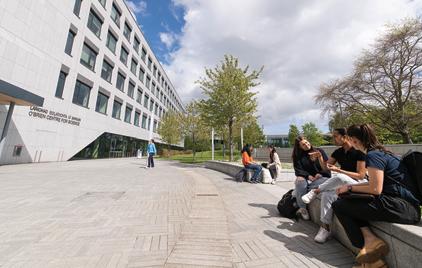


Zoology is often thought of in terms of treks into the wild to study rare and endangered species. However, this is only one facet of this fascinating subject. Modern zoology deals with all aspects of animals, from genetics and cell biology to ecology and animal behaviour.
Zoology is one of the degree subjects available through the Biological, Biomedical & Biomolecular Sciences stream in the common entry Science course. Students study similar modules for all degree subjects in the Biological, Biomedical & Biomolecular Sciences stream in first year and will study modules for a minimum of two degree subjects in second year. Students study their degree major in third and fourth year. This is a sample set of modules that a Zoology student could study each year in UCD. Students may also select option and elective modules throughout their degree.
YEAR 1
-Biology in Action
-Life on Earth
-Cell Biology and Genetics
-Biomedical Sciences
-The Basis of Organic and Biological Chemistry
-Mathematics for the Biological and Chemical Sciences
YEAR 2
-Principles of Zoology
-Scientific Communication
-Animal Behaviour
-Molecular Genetics and Biotechnology
-Chemistry for Biologists
YEAR 3
-Systems Ecology
-Working with Biological Data
-Diversity of Vertebrates
-Evolutionary Biology
-Functional Morphology
-Arthropoda
YEAR 4
-Zoology Research Project
-Biological Invasions
-Marine Community Ecology
-Bioassessent of Freshwaters
-Molecular Phylogenetics
-Epithelial Transport in Animal Physiology
*Modules are subject to change each year and are not guaranteed by UCD. In general, students have to decide on one stream to pursue in second year and will study two or more degree subjects from that stream. We do our best to ensure that students go on to study their top degree subject choice but if a degree subject is oversubscribed, places are allocated on a competitive basis.
Zoology graduates are employed in a variety of industries and state organisations such as National Parks & Wildlife Service, National Museum, Marine Institute, semi-state bodies such as the Environmental Protection Agency, ESB, Bord Iascaigh Mhara and Inland Fisheries Ireland, conservation bodies, aquaculture, universities, secondary schools, environmental consultancies, and several areas of biotechnology. Graduates can pursue graduate taught courses such as MSc Applied Environmental Science, MSc World Heritage Management and MSc Biological & Biomolecular Science. Graduates can pursue a PhD in universities in Ireland or abroad in areas as diverse as evolution and population biology and cell and molecular biology.



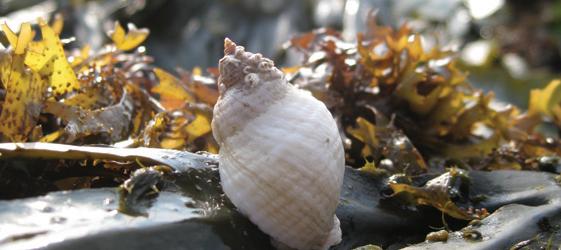


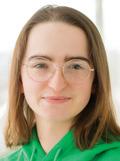
Katie Connolly, Graduate
I chose Zoology as the lecturers were so helpful and engaging, and there were plenty of opportunities to get hands-on experience at home and abroad. What I’ve enjoyed most are the small class sizes, as you can avail of more one-on-one conversations with lecturers, as well as the field trips where you can really apply your learning in the field.
One of the field trips was to a reservation in Costa Rica, learning about the local biodiversity as well as various methods of data collection such as electrofishing, radio telemetry, lizard fishing, butterfly and bee trapping, and bat/bird surveys. We also gained hands-on experience maintaining data sheets and identifying a number of tropical species.
While in UCD I was heavily involved in societies, both with the Science Society and with many of the performing societies such as Musical Soc, Dance Soc and Dram Soc. Engaging with clubs and societies alongside my studies was one of the best decisions I’ve ever made, and I’ve made lifelong friends and memories in the process.
Students have the opportunity to complete a Professional Placement module worth 5 credits. This module provides students with an opportunity to undertake a placement in industry (6-10 weeks) in the summer following third year. Students in recent years have completed internships in Dublin Zoo, Emerald Park, and Seal Rescue Ireland.
Students have also completed research placements in UCD labs.
Placements are secured on a competitive basis and are subject to change each year.



Earth Sciences are all about our planet and how it works: at no time has this been more important. The Earth System profoundly impacts many aspects of society, and its understanding is critical to developing solutions for current global challenges, including climate change, energy, access to clean water and protection from natural disasters.
Earth Sciences is a degree subject available through the Earth & Environmental Sciences stream in the common entry Science course. The degree covers the origin, structure and evolution of the Earth and the interplay between Earth processes and surface environments including the oceans, biosphere and atmosphere. It is a practical subject and students are trained in field and laboratory skills, as well as modern digital techniques using workstations and the latest geospatial and interpretation software. The course is taught from first principles and no prior knowledge of the Earth system is required. Below is a sample set of modules that an Earth Sciences student could study each year in UCD. Students may also select option and elective modules throughout their degree.
YEAR 1
-Introduction to Earth Sciences
-Earth Science and Materials
-Field Geology
-Earth, Environment and Society
-Earth and Humanity
-Mathematics for the Biological and Chemical Sciences
YEAR 2
-Crystals to Sedimentary Rocks
-Dynamic Earth
-Field Geology and Mapwork
-Global Environmental Change
-Geoscience for Sustainability
-History of Life on Earth
YEAR 3
-Geological Structures
-Sedimentary Environments
-Low-Temperature Geochemistry
-Digital Geology and GIS
-Earth Systems Analysis
-Future Energy
YEAR 4
-Earth Science Research Project
-Igneous and Ore Geology
-Advanced Geological Mapping
-Quaternary Geology
-Applied Geophysics
-Geological Fieldwork
-Marine Geoscience
*Modules are subject to change each year and are not guaranteed by UCD. In general, students have to decide on one stream to pursue in second year and will study two or more degree subjects from that stream. We do our best to ensure that students go on to study their top degree subject choice but if a degree subject is oversubscribed, places are allocated on a competitive basis.
Earth Sciences graduates work in organisations essential to understanding and protecting the environment including national geological surveys, NGOs, onshore and offshore geotechnical companies, environmental consultancies, and insurance firms managing natural disaster risk. They are also employed in companies in the natural resources sector as mineral exploration or production geologists, geophysicists, hydrogeologists, environmental geochemists, geospatial analysts, and marine surveyors. Graduates can pursue the MSc Subsurface Characterisation & Geomodelling in UCD or qualify for other graduate taught courses in Ireland, the UK and elsewhere on topics including hydrogeology, engineering geology, mineral exploration, remote sensing and GIS or environmental science. Graduates can pursue a PhD in universities in Ireland or abroad in areas as diverse as mineral and raw materials exploration, volcanic and earthquake hazards, palaeobiology, environmental geochemistry, geophysics, and climate science.




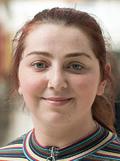
Grace Fitzgerald, Graduate
Earth Sciences is such a diverse and exciting field of study. The creation and destruction of the Earth beneath our feet, strange creatures preserved in rock and ancient catastrophic events are among a few of the things I find fascinating about it. I was always interested in Science but found it very difficult to pinpoint a specific area within it to study. UCD Science became a clear first choice for me because of the common entry system, and it was through this course that I discovered my love of Earth Sciences. I am now working as a project coordinator in the Offshore Wind Industry. Working in an industry that is constantly taking strides towards a greener future for Ireland is so exciting.
Students have an opportunity to complete a Geoscience Work Placement worth 5 credits in industry (6-10 weeks) in the summer following second year. Assessment is based on student and employer reports. Work placements are secured on a competitive basis and are typically hosted by resource-based, geotechnical, civil engineering and environmental consultancy companies.
Earth Sciences students also complete residential field training at the end of the summer vacation prior to their fourth year, followed by an independent, usually fieldbased, research project during September and October, providing them with key technical and transferable skills needed in numerous geoscientific careers. Several core modules involve 5 to 8 day residential field classes in Ireland, Britain and Spain.




All materials and living things consist of atoms that are linked together in many different ways in molecules. Chemistry is a study of these molecules, how they form and react. You will also develop skills in modern synthesis and analysis techniques used in the pharmaceutical and chemistry industries.
Chemistry is one of the degree subjects available through the Chemistry stream in the common entry Science course. Students study similar modules for all degree subjects in the Chemistry stream in first year and will study modules for a minimum of two degree subjects in second year. Students study their degree major in third and fourth year. This is a sample set of modules that a Chemistry student could study each year in UCD. Students may also select option and elective modules throughout their degree.
YEAR 1
-The Basis of Organic and Biological Chemistry
-The Basis of Physical Chemistry
-The Molecular World
-Mathematics for the Biological and Chemical Sciences
YEAR 2
-The Basis of Inorganic Chemistry
-Organic Chemistry
-Physical Chemistry
-Inorganic Chemistry
YEAR 3
-Quantum Mechanics
-Carbonyl Chemistry and Synthesis
-Chemical Kinetics
-Mechanism and Stereochemistry
-Instrumental Analysis
-Organometallic and Solid State Chemistry
YEAR 4
-Chemistry Research Project
-Methods in Organic Synthesis
-Chemical Thermodynamics
-Electrochemistry
-Reactivity and Change
-Nanochemistry
-Advanced Inorganic Chemistry
*Modules are subject to change each year and are not guaranteed by UCD. In general, students have to decide on one stream to pursue in second year and will study two or more degree subjects from that stream. We do our best to ensure that students go on to study their top degree subject choice but if a degree subject is oversubscribed, places are allocated on a competitive basis.
The pharmaceutical industry is one of the largest in Ireland, and UCD Chemistry graduates work in a variety of roles. This includes analytical roles in laboratories on the testing and analysis of active pharmaceutical ingredients, medicines, and medical devices. Some graduates pursue research chemist roles in laboratories in research and development. Management and supervisory roles are also an option in regulatory affairs, production and validation. The semiconductor, medical device and energy industries also hire a significant number of materials chemists, and graduates would be involved in semiconductor processing, effluent and raw materials monitoring, and air and water quality measurements. Chemistry graduates also pursue PhDs in Ireland or abroad in areas as diverse as total synthesis of natural products, biological aspects of nanoscience, novel material synthesis, energy generation, synthetic organic chemistry, methodology development and polymer chemistry.



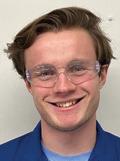
Liam Jowett, Graduate
I am fascinated by the world around me, from the fundamental laws of our universe to the mechanisms of life itself. I have found Chemistry in UCD to be a place where my own curiosities and my passion to make a difference have been nurtured and developed. The lecturers are all kind, helpful and supportive, and their passion for their work is something I continue to find inspiring. Through UCD I was lucky enough to be awarded a scholarship to study for a term in the US, where I made many friends and grew as a chemist, and as a person. The UCD community is an incredible environment and there is a society or club for everyone.
Students have the opportunity to complete a Professional Placement module worth 5 credits. This module provides students with an opportunity to undertake a placement in industry (6-10 weeks) in the summer following third year.
Students in recent years have completed internships in IRLCA, Boston Scientific, APC Ltd and in hospital placements.
Students can also apply for research placements in UCD labs.
Placements are secured on a competitive basis and are subject to change each year.




As part of your studies, you will learn the basis of ‘Green Chemistry’ and what happens, at a molecular level, when chemicals interact with the environment. You will also discover techniques to produce energy and commodity chemicals sustainably.
Chemistry with Environmental & Sustainable Chemistry is one of the degree subjects available through the Chemistry stream in the common entry Science course. Students study similar modules for all degree subjects in the Chemistry stream in first year and will study modules for a minimum of two degree subjects in second year. Students study their degree major in third and fourth year. This is a sample set of modules that a Chemistry with Environmental & Sustainable Chemistry student could study each year in UCD. Students may also select option and elective modules throughout their degree.
YEAR 1
-The Basis of Organic and Biological Chemistry
-The Basis of Physical Chemistry
-The Molecular World
-Mathematics for the Biological and Chemical Sciences
YEAR 2
-Environmental and Sustainable Chemistry
-Inorganic Chemistry
-Physical Chemistry
-Environmental Geology
YEAR 3
-Quantum Mechanics
-Carbonyl Chemistry and Synthesis
-Self-Assembly of Biomolecules
-Mechanism and Stereochemistry
-Instrumental Analysis
-Organometallic and Solid State Chemistry
YEAR 4
-Environmental and Sustainable Chemistry Research Project
-Green and Sustainable Chemistry
-Methods in Organic Synthesis
-Chemical Thermodynamics
-Nanochemistry
*Modules are subject to change each year and are not guaranteed by UCD. In general, students have to decide on one stream to pursue in second year and will study two or more degree subjects from that stream. We do our best to ensure that students go on to study their top degree subject choice but if a degree subject is oversubscribed, places are allocated on a competitive basis.
Apart from the disciplines that are available to graduates with a BSc in Chemistry, graduates in Chemistry with Environmental & Sustainable Chemistry will be particularly suited to employment in the environmental and emerging energy industries, including commercial environmental analysis, alternative energy industry, Environmental Protection Agency, ESB and Bord Gáis. Graduates can also pursue a range of MSc or PhD opportunities in Ireland or abroad.







Niamh Gurrin, Graduate
I was always interested in environmental protection and science. The common entry Science course allowed me to develop a holistic understanding of the environment by taking classes in Biology and Geology in addition to my Chemistry modules. I enjoyed Chemistry with Environmental & Sustainable Chemistry the most as it is very solutions focussed. I completed a threemonth internship with the Environmental Protection Agency in the summer after third year. I was part of the Industrial Licence Enforcement team in Dublin. I researched and wrote an 8000-word report on 22 special area of conservation peat bog sites and worked as part of a team to prepare for the new solid fuel regulations that came in place last year. Since graduating, I have started a PhD at the University of Edinburgh.
Students have the opportunity to complete a Professional Placement module worth 5 credits. This module provides students with an opportunity to undertake a placement in industry (6-10 weeks) in the summer following third year.
Students in recent years have completed internships in the Environmental Protection Agency and Colas Bitumen Emulsions East.
Students can also apply for research placements in UCD labs.
Placements are secured on a competitive basis and are subject to change each year.
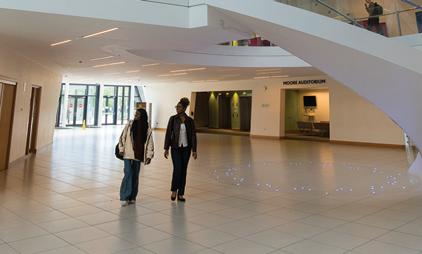



As part of your studies, you will learn how to apply the tools of Chemistry to study biological systems. You will also develop experience in techniques and instrumentation used in the pharmaceutical industry, e.g., the synthesis, identification and analysis of chemicals.
Medicinal Chemistry & Chemical Biology is one of the degree subjects available through the Chemistry stream in the common entry Science course. Students study similar modules for all degree subjects in the Chemistry stream in first year and will study modules for a minimum of two degree subjects in second year. Students study their degree major in third and fourth year. This is a sample set of modules that a Medicinal Chemistry & Chemical Biology student could study each year in UCD. Students may also select option and elective modules throughout their degree.
YEAR 1
-The Basis of Organic and Biological Chemistry
-The Basis of Physical Chemistry
-The Molecular World
-Cell Biology and Genetics
-Mathematics for the Biological and Chemical Sciences
YEAR 2
-Molecular Genetics and Biotechnology
-Principles of Biochemistry
-Medicinal Chemistry and Chemical Biology
-Pharmacology: Biomedical Science of Drugs
-Biomolecular Laboratory Skills
-Organic Chemistry
YEAR 3
-Chemical Biology of Natural Products
-Chemical Biology of Macromolecules
-Carbonyl Chemistry and Synthesis
-Medicinal Chemistry
-Structure Determination and Heterocyclic Chemistry
-Microbial Cell Factory/Chemists
YEAR 4
-Research Project
-Metals in Biology
-Methods in Organic Synthesis
-Modern Methods of Catalysis
-Special topics in Medicinal Chemistry and Chemical Biology
*Modules are subject to change each year and are not guaranteed by UCD. In general, students have to decide on one stream to pursue in second year and will study two or more degree subjects from that stream. We do our best to ensure that students go on to study their top degree subject choice but if a degree subject is oversubscribed, places are allocated on a competitive basis.
Most graduates work in the pharmaceutical, materials or chemical industries. Positions range from life cycle analyses, to manufacturing chemists, research and development and raw materials/ product analysis. Apart from the positions for which a chemistry degree would qualify a student, graduates of this degree would be uniquely qualified to work in fields related to environmental protection, sustainable production and renewable energy generation. Graduates can pursue a PhD in universities in Ireland or abroad in areas such as pharmaceutical design, atmospheric kinetics, biological aspects of nanoscience and energy generation.




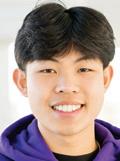
Meng-Jan Lim, Student
I chose Medicinal Chemistry & Chemical Biology because I have always been fascinated by the intersection of chemistry and biology, and how the knowledge of chemical compounds and reactions can be used to improve human health. One of the things I enjoy most about my studies is the hands-on laboratory work. I find it incredibly satisfying to conduct experiments and see the results first-hand. After I graduate, I hope to pursue a career in the pharmaceutical industry where I can use my knowledge and skills to contribute to the development of new and effective medications. Long-term, I would like to participate in the development and research of new drugs and therapies.
Students have the opportunity to complete a Professional Placement module worth 5 credits. This module provides students with an opportunity to undertake a placement in industry (6-10 weeks) in the summer following third year.
Students in recent years have completed internships in Henkel and APC Ltd.
Students can also apply for research placements in UCD labs.
Placements are secured on a competitive basis and are subject to change each year.
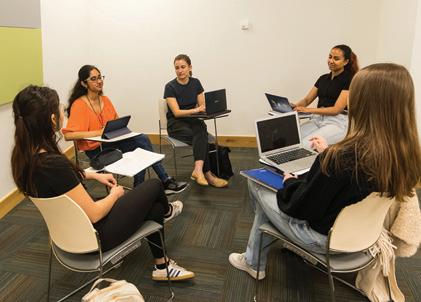



As part of your studies, you will discover how Applied and Computational Mathematics is fundamental in providing uniquely powerful ways to describe, analyse and advance the physical and life sciences, engineering, technology, business and finance.
Applied & Computational Mathematics is one of the degree subjects available through the Mathematics stream in the common entry Science course. Students study similar modules for all degree subjects in the Mathematics stream in first year and will study modules for a minimum of two degree subjects in second year. Students study their degree major in third and fourth year. This is a sample set of modules that an Applied & Computational Mathematics student could study each year in UCD. Students may also select option and elective modules throughout their degree.
YEAR 1
-Introduction to Applied and Computational Mathematics
-Applications of Differential Equations
-Linear Algebra
-Calculus in the Mathematical and Physical Sciences
-Mathematical Analysis
YEAR 2
-Computational Science
-Vector Integral and Differential Calculus
-Oscillations and Waves
-Classical Mechanics
YEAR 3
-Mathematical Biology
-Dynamical Systems
-Complex Analysis
-Partial Differential Equations
-Advanced Mathematical Methods
-Mathematical Fluid Dynamics I
-Advanced Computational Science
YEAR 4
-Research Project
-Weather and Climate
-General Relativity and Gravitational Waves
-General Relativity and Black Holes
-Electrodynamics and Gauge Theory
-Mathematics of Sustainability and the Environment
-Optimisation Algorithms
-Mathematics of Machine Learning
*Modules are subject to change each year and are not guaranteed by UCD. In general, students have to decide on one stream to pursue in second year and will study two or more degree subjects from that stream. We do our best to ensure that students go on to study their top degree subject choice but if a degree subject is oversubscribed, places are allocated on a competitive basis.
Graduates with training in Applied & Computational Mathematics work in fields as diverse as analytics and forecasting, meteorology, energy systems, electronics, biomedical applications and bio-information, finance, pharmaceutical industry, environmental agencies and companies, and computing in business, technology, research, and academia.







PJ Nee, Graduate
After my first Applied & Computational Mathematics class, I knew it was the right choice for me. The chance to study the mechanics and structure of Mathematics and learn how to apply it to not just Physics and Computer Science but to a wide range of other fields was thrilling. That, along with my time spent as a class representative, was so rewarding; getting to organise events, trips and hoodies for my class. As well as this, UCD Science gave me the opportunity to spend a trimester studying abroad in California, broadening my perspective and giving me a more varied education. My time at UCD left me well prepared for a Masters at the University of Cambridge.
Students have the opportunity to complete a Professional Placement module worth 5 credits. This module provides students with an opportunity to undertake a placement in industry (6-10 weeks) in the summer following third year.
Students in recent years have completed internships in Flutter and Met Éireann.
Students can also apply for a UCD research placement.
Placements are secured on a competitive basis and are subject to change each year.
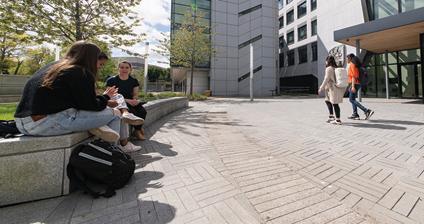



As part of your studies, you will develop strong mathematical, problem-solving and analytical skills used in banking and finance. You will also learn the mathematical theories that underpin financial models, as well as computational expertise in the algorithms used to price financial products.
Financial Mathematics is one of the degree subjects available through the Mathematics stream in the common entry Science course. Students study similar modules for all degree subjects in the Mathematics stream in first year and will study modules for a minimum of two degree subjects in second year. Students study their degree major in third and fourth year. This is a sample set of modules that a Financial Mathematics student could study each year in UCD. Students may also select option and elective modules throughout their degree.
YEAR 1
-Calculus in the Mathematical and Physical Sciences
-Linear Algebra in the Mathematical and Physical Sciences
-Numbers and Functions
-Mathematical Analysis
-Statistical Modelling
-Applications of Differential Equations
YEAR 2
-Calculus of Several Variables
-Linear Algebra 2
-Theory of Games
-Foundations in Finance
YEAR 3
-Partial Differential Equations for Financial Mathematics
-Metric Spaces
-Fundamentals of Actuarial and Financial Mathematics
-Corporate Finance
-Statistical Machine Learning
-Advanced Computational Finance
YEAR 4
-Measure Theory and Integration
-Probability Theory
-Financial and Actuarial Mathematics
-Investment and Trading
-Advanced Risk Management
*Modules are subject to change each year and are not guaranteed by UCD. In general, students have to decide on one stream to pursue in second year and will study two or more degree subjects from that stream. We do our best to ensure that students go on to study their top degree subject choice but if a degree subject is oversubscribed, places are allocated on a competitive basis.
Graduates with training in Financial Mathematics work in fields as diverse as quantitative positions in international financial companies, risk modelling in banking and insurance, computing in business, technology, research, and academia. Graduates can also pursue a range of MSc or PhD programmes such as the MSc Actuarial Science, MSc Financial Mathematics or MSc Statistical Data Science.





Joseph Mulligan, Graduate
When I came to the UCD Open Day and saw the beautiful science building and how friendly everyone was, my mind was made up right away. When I learned about Financial Mathematics, it sounded like the perfect way to continue to study mathematics while also combining it with my interest in financial markets. I was also lucky enough to get to go abroad for my third year to UC Berkeley in California, which was an amazing experience. Studying at a different institution gave me another perspective and I think it’s really helped me in my final year. I also completed an internship in the summer between third and fourth year at Credit Suisse and was able to earn credits as part of the professional placement module. After graduating, I went back to work at the same firm full time.
Students have the opportunity to complete a Professional Placement module worth 5 credits. This module provides students with an opportunity to undertake a placement in industry (6-10 weeks) in the summer following third year.
Students in recent years have completed internships in Grant Thornton, NumerixFincad, AIB, Murex, Mazars, JP Morgan, IMC Trading and Citibank.
Placements are secured on a competitive basis and are subject to change each year.




As part of your studies, you will discover the power and beauty of the universal language of Mathematics. You will also explore its applications and its deep influence on the physical and social sciences, technology, data analysis, philosophy and more.
Mathematics is one of the degree subjects available through the Mathematics stream in the common entry Science course. Students study similar modules for all degree subjects in the Mathematics stream in first year and will study modules for a minimum of two degree subjects in second year. Students study their degree major in third and fourth year. This is a sample set of modules that a Mathematics student could study each year in UCD. Students may also select option and elective modules throughout their degree.
YEAR 1
-Applied Mathematics: Mechanics and Methods
-Calculus in the Mathematical and Physical Sciences
-Numbers and Functions
-Linear Algebra in the Mathematical and Physical Sciences
-Mathematical Analysis
-Applications of Differential Equations
YEAR 2
-Linear Algebra 2
-Calculus of Several Variables
-Groups, Rings and Fields
YEAR 3
-Advanced Linear Algebra
-Metric Spaces
-Further Groups and Rings
-Measure Theory and Integration
-Functions of One Complex Variable
-Topology
YEAR 4
-Final Year Project
-Differential Geometry
-Functional Analysis
-Probability Theory
-Algebraic Geometry
-Galois Theory
-Number Theory
*Modules are subject to change each year and are not guaranteed by UCD. In general, students have to decide on one stream to pursue in second year and will study two or more degree subjects from that stream. We do our best to ensure that students go on to study their top degree subject choice but if a degree subject is oversubscribed, places are allocated on a competitive basis.
Each year sees new applications of sophisticated mathematical models and procedures in insurance and actuarial services, data analytics, the stock market, banking and industry. Employers in all of these areas seek mathematics graduates for their critical thinking and problem-solving skills. Our recent graduates are working in many diverse areas, including actuarial science, banking and financial services, civil service, coding and cryptography companies, IT industry, meteorology and research. Opportunities for further study include MSc and PhD programmes in the mathematical sciences in Ireland and abroad, leading to research positions in universities or industry.







Ellen Healy, Graduate
I decided to study at UCD due to its beautiful campus, unparalleled facilities, and the ability to tailor my degree to what interested me most. My favourite part of studying Mathematics is learning to look at a complicated logical problem and slowly teasing out the solution through different approaches. The variety in assessment of projects, assignments and exams helped ensure I understood topics in theory and practice. Being involved in the Literary & Historical society and the Women+ in STEM society has helped me meet an incredible group of friends and has aided me in developing a wide variety of extracurricular skills.
Students have the opportunity to complete a Professional Placement module worth 5 credits. This module provides students with an opportunity to undertake a placement in industry (6-10 weeks) in the summer following third year.
Students in recent years have completed internships in DIAS, Deloitte and AIB.
Students can also apply to complete Undergraduate Summer Research Projects in the UCD School of Mathematics and Statistics in the summer after third year.
Placements are secured on a competitive basis and are subject to change each year.
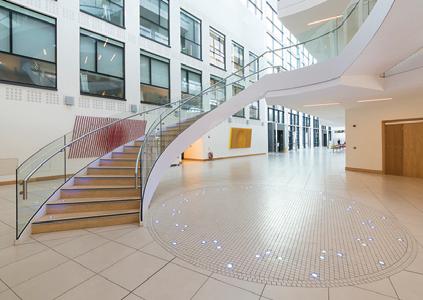



As part of your studies you will learn statistical methods and acquire key skills in computing and data analysis that are crucial for transforming data into actionable knowledge. These are essential in various data-related industries, including healthcare, finance, and the government sector.
Statistics is one of the degree subjects available through the Mathematics stream in the common entry Science course. Students study similar modules for all degree subjects in the Mathematics stream in first year and will study modules for a minimum of two degree subjects in second year. Students study their degree major in third and fourth year. This is a sample set of modules that a Statistics student could study each year in UCD. Students may also select option and elective modules throughout their degree.
YEAR 1
-Statistical Modelling
-Calculus in the Mathematical and Physical Sciences
-Linear Algebra in the Mathematical and Physical Sciences
-Mathematical Analysis
-Numbers and Functions
-Applications of Differential Equations
YEAR 2
-Introduction to Probability
-Inferential Statistics
-Bayesian Statistics
-Modern Regression Analysis
YEAR 3
-Statistical Machine Learning
-Advanced Predictive Analytics
-Data Programming with R
-Data Programming with Python
-Time Series
-Stochastic Models
YEAR 4
- Statistics and Data Science Research Project
- Monte Carlo Inference
- Bayesian Data Analysis
- Actuarial Statistics
- Machine Learning and AI
- Survival Models
*Modules are subject to change each year and are not guaranteed by UCD. In general, students have to decide on one stream to pursue in second year and will study two or more degree subjects from that stream. We do our best to ensure that students go on to study their top degree subject choice but if a degree subject is oversubscribed, places are allocated on a competitive basis.
With a degree in statistics, you will acquire the necessary skills to unlock insights from complex data, and steer crucial decisions across a diverse range of sectors. As a statistician, you will be highly valued across a broad spectrum of fields, such as healthcare, business, bioscience, finance, climate science, economics, sports analytics, education, and government. Our graduates are well-prepared to enter the workforce and make a significant impact in their chosen careers. A degree in statistics also opens doors to graduate studies in both taught and research programmes. Many of our graduates pursue advanced degrees, which further deepen their knowledge and expertise in the field, providing numerous opportunities for career advancement.




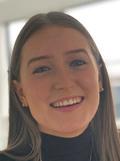
Emer Clune, Graduate
I decided to study at UCD as I have always loved Mathematics and knew I wanted to study it in college. UCD gave me the flexibility to see what type of Maths subject I enjoyed the most before deciding to major in Statistics. I love getting to see Mathematics applied to real-world data and establishing patterns and reasonings behind different outcomes. I was also Secretary of the Trampoline Club, which I joined back in first year and have made some of my closest friends through the club! In my summer of third year, I completed an internship in data analytics and after after I graduated, I started work as a data analyst.
Students have the opportunity to complete a Professional Placement module worth 5 credits. This module provides students with an opportunity to undertake a placement in industry (6-10 weeks) in the summer following third year.
Students in recent years have completed internships in KPMG, PwC, Brightwind and American Express.
Students can also apply to complete Undergraduate Summer Research Projects in the UCD School of Mathematics and Statistics in the summer after third year.
Placements are secured on a competitive basis and are subject to change each year.




As part of your studies, you will learn how to investigate the physical world from the outermost reaches of the universe to the innermost parts of the atom. You will also develop skills in how to interpret the physical world, carry out experiments and compare results critically with predictions from theory.
Physics is one of the degree subjects available through the Physics stream in the common entry Science course. Students study similar modules for all degree subjects in the Physics stream in first year and will study modules for a minimum of two degree subjects in second year. Students study their degree major in third and fourth year. This is a sample set of modules that a Physics student could study each year in UCD. Students may also select option and elective modules throughout their degree.
YEAR 1
-Foundations of Physics
-Frontiers of Physics
-Thermal Physics and Materials
-Quanta, Particles and Relativity
-Calculus in the Mathematical and Physical Sciences
-Linear Algebra in the Mathematical and Physical Sciences
YEAR 2
-Electronics and Devices
-Introductory Quantum Mechanics
-Fields, Waves and Light
-Methods for Physicists
-Thermodynamics and Statistical Physics
YEAR 3
-Classical Mechanics and Relativity
-Optics and Lasers
-Electromagnetism
-Advanced Laboratory
-Nuclear Physics
-Quantum Mechanics
YEAR 4
-Advanced Laboratory
-Applied Quantum Mechanics
-Applied Optics
-General Relativity and Cosmology
-High Energy Particle Physics
-Computational Biophysics
-Theoretical Astrophysics
*Modules are subject to change each year and are not guaranteed by UCD. In general, students have to decide on one stream to pursue in second year and will study two or more degree subjects from that stream. We do our best to ensure that students go on to study their top degree subject choice but if a degree subject is oversubscribed, places are allocated on a competitive basis.
Physics at UCD is an Institute of Physics accredited degree, and graduates are well positioned to pursue careers in areas such as energy technology, medical physics, meteorology, advanced materials (e.g. semiconductor industry), geoscience, ICT and financial industries, and semistate bodies such as the EPA’s Office of Radiological Protection. Graduates are also eligible to apply for MSc programmes in Nanobio Science, Space Science & Technology, Nanotechnology, Medical Physics or Meteorology, or for PhD programmes in Ireland and abroad in diverse areas such as Radiation Physics, Physics of Advanced Materials, Atomic Physics, Particle Physics and Astrophysics.
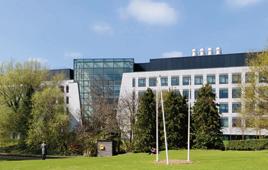


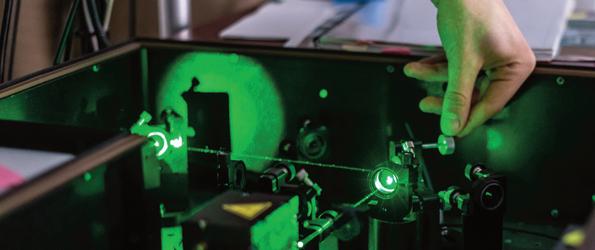


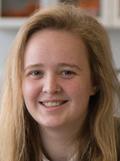
Eimear Conroy, Graduate
I really fell in love with Physics after being able to apply what I learned in the classroom first-hand in the lab at UCD. This interest was boosted by two opportunities to undertake internships during my degree.
After second year, I worked closely with UCD School of Physics staff to write programs to solve equations describing white dwarf and neutron stars. Then, in third year, I travelled to the University of Notre Dame in the United States to study radioactive materials’ impact on the environment.
Inspired by these internships, I began a PhD in particle physics. I am currently based at CERN in Switzerland, helping to run the ATLAS experiment at the Large Hadron Collider and to analyse the particle collisions it records.
The UCD School of Physics typically offers a number of research studentships working on a range of projects within the School. These are suitable for undergraduates currently studying physics or a related discipline, and aim to give students the opportunity to gain research experience.




As part of your studies, you will develop practical skills by making astronomical observations using a variety of telescopes.
Physics with Astronomy & Space Science is one of the degree subjects available through the Physics stream in the common entry Science course. Students study similar modules for all degree subjects in the Physics stream in first year and will study modules for a minimum of two degree subjects in second year. Students study their degree major in third and fourth year. This is a sample set of modules that a Physics with Astronomy & Space Science student could study each year in UCD. Students may also select option and elective modules throughout their degree.
YEAR 1
-Foundations of Physics
-Frontiers of Physics
-Astronomy and Space Science
-Thermal Physics and Materials
-Quanta, Particles and Relativity
-Calculus in the Mathematical and Physical Sciences
YEAR 2
-Electronics and Devices
-Introductory Quantum Mechanics
-Fields, Waves and Light
-Exploring the Solar System
-Methods for Physicists
YEAR 3
-Classical Mechanics and Relativity
-Stellar Astrophysics and Astronomical Techniques
-Optics and Lasers
-Physics with Astronomy and Space Science Lab
-Quantum Mechanics
YEAR 4
-Physics with Astronomy & Space Science Lab
-Galaxies, Observational Cosmology and the Interstellar Medium
-Astronomy Field Trip to Tenerife/Spain
-Theoretical Astrophysics
-General Relativity and Cosmology
-Applied Quantum Mechanics
*Modules are subject to change each year and are not guaranteed by UCD. In general, students have to decide on one stream to pursue in second year and will study two or more degree subjects from that stream. We do our best to ensure that students go on to study their top degree subject choice but if a degree subject is oversubscribed, places are allocated on a competitive basis.
Physics with Astronomy & Space Science at UCD is an Institute of Physics accredited degree, which positions graduates to go into the rapidly growing space sector. There are opportunities for well-qualified graduates to work with major space agencies, such as ESA and NASA, or with space companies. Graduates are also qualified to go into areas such as medical physics, meteorology, semiconductor technology, energy, ICT and finance. Graduates may apply for MSc programmes such as Space Science & Technology. They may also pursue research through PhD programmes in Ireland and abroad in many fields of physics.




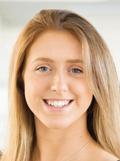
Amy Barter, Graduate
I chose UCD Science as it allowed me to explore multiple streams without having to study all areas of Science. I knew I wanted to study Physics but I was also extremely interested in Chemistry. At UCD I was able to keep both options open in first year before making my decision. Whilst in UCD, I took part in every aspect of student life. I was on society committees, a peer mentor, a class rep on the student union, lived on campus, and even worked on campus.
During the summer between third and fourth year, I completed a Research Internship with the UCD School of Physics. I studied gammaray bursts and it really opened my eyes to the world of research and gave me a better understanding of what a research career in physics would look like in my future.

The UCD School of Physics typically offers a number of research studentships working on a range of projects within the School. These are suitable for undergraduates currently studying physics or a related discipline, and aim to give students the opportunity to gain research experience.



As part of your studies, you will learn to understand and predict the behaviour of physical systems ranging from subatomic to astronomical scales using advanced mathematics.
Theoretical Physics is one of the degree subjects available through the Physics stream in the common entry Science course. Students study similar modules for all degree subjects in the Physics stream in first year and will study modules for a minimum of two degree subjects in second year. Students study their degree major in third and fourth year. This is a sample set of modules that a Theoretical Physics student could study each year in UCD. Students may also select option and elective modules throughout their degree.
-Foundations of Physics
-Frontiers of Physics
-Thermal Physics and Materials
-Quanta, Particles and Relativity
-Calculus in the Mathematical and Physical Sciences
-Linear Algebra in the Mathematical and Physical Sciences
YEAR 2
-Electronics and Devices
-Introductory Quantum Mechanics
-Fields, Waves and Light
-Methods for Physicists
-Calculus of Several Variables
-Analytical Mechanics
-Partial Differential Equations
-Electromagnetism
-Foundations of Fluid Mechanics
-Quantum Mechanics
-Functions of One Complex Variable
YEAR 4
-Theoretical Physics Project
-Applied Quantum Mechanics
-Advanced Mathematical Methods
-High Energy Particle Physics
-Nuclear Physics
-General Relativity and Cosmology
-Computational Biophysics
*Modules are subject to change each year and are not guaranteed by UCD. In general, students have to decide on one stream to pursue in second year and will study two or more degree subjects from that stream. We do our best to ensure that students go on to study their top degree subject choice but if a degree subject is oversubscribed, places are allocated on a competitive basis.
Theoretical Physics graduates can choose to develop careers in a variety of sectors including academic and government research Institutions, energy technologies, information and communication technology, advanced materials [e.g. semiconductor industry], management consulting, stock market and financial risk analysis, climate change and environmental impact analysis, and second and third-level education. Our Theoretical Physics degree is an accredited Physics degree and graduates are well prepared for further research and have successfully completed PhDs in MIT, Caltech, Harvard, Princeton and Cambridge, as well as in UCD.






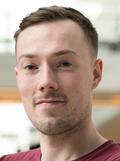
Ian Smith, Graduate
In first year, I had the opportunity to sample a number of different areas before eventually choosing Theoretical Physics as my degree. The combination of problem solving, mathematics and programming helped me make my decision. I travelled to CERN in Geneva with the Physics Society which was a great experience. I also regularly went on surf trips with UCD Surf Club around Ireland. I travelled with the club to Taghazout in Morocco on their annual foreign trip where I had an amazing time. Since my graduation, I have been working as a Technology Consultant within Ernst & Young which gives me the opportunity to work on a large variety of projects and learn about how technology can be used to solve problems for various clients.
The UCD School of Physics typically offers a number of research studentships working on a range of projects within the School. These are suitable for undergraduates currently studying physics or a related discipline, and aim to give students the opportunity to gain research experience.


The Science Common Entry course offers 5 Science, Mathematics & Education degree subjects, all approved by the Teaching Council of Ireland. Students complete a 4-year BSc which leads directly to a oneyear MSc in Mathematics and Science Education. On completion of both degrees, you are fully qualified to teach your chosen Science subject and Mathematics to Higher Level Leaving Certificate Level.



Q: Will I have classes with other Science students?
n Biology, Mathematics & Education
n Chemistry, Mathematics & Education
n Physics, Mathematics & Education Degree Subjects
n Applied Mathematics, Mathematics & Education
n Computer Science, Mathematics & Education
Your first core Education module will be in the Spring of first year, where you will learn about theories in formal and informal STEM education.
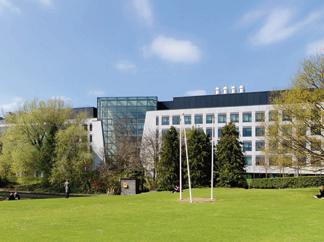
You choose one of the Science, Mathematics & Education degree subjects at the end of second year.
A:You will enter Science with all of the other students in the common entry Science course and be part of classes with students from other streams. Your first core education module will be in the Spring of first year, where you will learn about theories in formal and informal STEM education. This module will be useful to you as a future scientist and as a potential future educator and includes an optional school placement.
Q: What if I finish my four year BSc and then decide I don't want to teach?
A: For all the Science and Mathematics Education degrees, you study Mathematics and another Science subject, providing you with a qualification as a Science graduate and potential future Educator. You can pursue other options after your BSc. For example, some of our students have progressed to PhD research or to the working environment.


APPROVED DEGREES

If you are interested in Applied Mathematics and Mathematics and think you might like to teach these subjects at post-primary level, then this degree subject may be for you. It is designed so that you study mathematics, applied mathematics and education in an integrated manner. Throughout the course you will gain teaching experience through structured educational placements.
Applied Mathematics, Mathematics & Education is one of the degree subjects in the Science, Mathematics & Education stream in the common entry Science course. Students study the modules required for the Applied Mathematics, Mathematics & Education in first year and will study modules for a minimum of two degree subjects in second year. Students interested in Science, Mathematics & Education degree subjects also have the choice to pursue the modules required for degree subjects in other streams within the common entry Science course. Students study their degree major in third and fourth year which leads directly to a one-year MSc in Mathematics and Science Education. This is a sample pathway for Applied Mathematics, Mathematics & Education. Students may also select option and elective modules throughout their degree.
YEAR 1
-Mathematics and Science Education and Communication
-Applied Mathematics: Mechanics and Methods
-Applications of Differential Equations
-Linear Algebra
-Numbers and Functions
-Calculus
YEAR 2
-Key Ideas in Education
-Science and Mathematics Pedagogy
YEAR 3
-Schools and Society
YEAR 4
-Pedagogical Approaches to Mathematics and Science
-Psychology for Teaching and Learning
YEAR 5
-Research Methods
-Professional Dissertation
-Year-Long Placement in Post Primary School
-Continuous Professional Development
*Modules are subject to change each year and are not guaranteed by UCD. In general, students have to decide on one stream to pursue in second year and will study two or more degree subjects from that stream. We do our best to ensure that students go on to study their top degree subject choice but if a degree subject is oversubscribed, places are allocated on a competitive basis.
After graduating with their BSc, students proceed to the MSc in Mathematics & Science Education. The complete five-year course is fully accredited by the Teaching Council of Ireland with graduates qualified to teach Applied Mathematics and Mathematics to Leaving Certificate level. You can pursue other options after your BSc. For example, some of our students have progressed to PhD research or to the working environment.
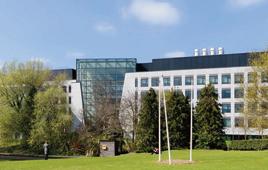




Deeba Javadpour, Graduate
I chose UCD Science because I knew I wanted to study Mathematics. I was set on studying pure mathematics but after completing a module on mathematics education, I realised that while I have a love for mathematics, I have a passion for mathematics education and communication. The great thing about this degree is that there are a lot of options available after graduating. The world of mathematics education and communication is so extensive, and I am keen to be a part of it in many ways. I find teaching very rewarding, so I see myself working in a secondary school to gain experience. I would love to come back to college to pursue a graduate degree and get involved in mathematics education research.
A key feature of the of the Science, Mathematics & Education degree subjects are the professional work placements throughout the course.
In first and second year, you will get a taste of what it might be like to be a teacher, with short structured placements in Mathematics and Science education modules. In third year, you will participate in a Peer-Assisted Tutoring, tutoring first year undergraduate students and gaining insights into key aspects of learning in the transition from postprimary to third level education. In third year, you will also participate in a post-primary school placement in STEM over one term.
In fourth and fifth year, you will participate in a year-long school placement, with all undergraduate placements organised by the UCD School of Mathematics and Statistics. There are opportunities for paid summer internships with STEM companies in the summers after third, fourth and fifth year.



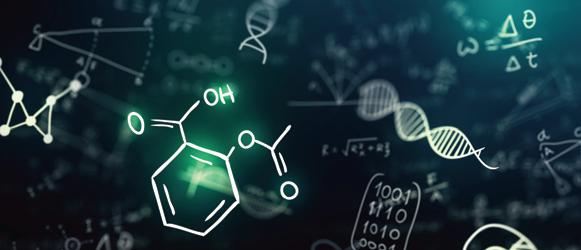
If you are interested in Biology and Mathematics, and think you might like to teach these subjects at post-primary level, then this degree subject may be for you. It is designed so that you study mathematics, biology and education in an integrated manner. Throughout the course you will gain teaching experience through structured educational placements.

Biology, Mathematics & Education is one of the degree subjects in the Science, Mathematics & Education stream in the common entry Science course. Students study the modules required for the Biology, Mathematics & Education in first year and will study modules for a minimum of two degree subjects in second year. Students interested in Science, Mathematics & Education degree subjects also have the choice to pursue the modules required for degree subjects in other streams within the common entry Science course. Students study their degree major in third and fourth year which leads directly to a one-year MSc in Mathematics and Science Education. This is a sample pathway for Biology, Mathematics & Education. Students may also select option and elective modules throughout their degree. APPROVED DEGREES
YEAR 1
-Mathematics and Science Education and Communication
-Biology in Action
-Life on Earth
-Cell Biology and Genetics
-Linear Algebra
-Calculus
YEAR 2
-Key Ideas in Education
-Science and Mathematics Pedagogy
YEAR 3
-Teaching Second-Level Science
-Schools and Society
YEAR 4
-Pedagogical Approaches to Mathematics and Science
-Psychology for Teaching and Learning
YEAR 5
-Research Methods
-Professional Dissertation
-Year-Long Placement in Post Primary School
-Continuous Professional Development
*Modules are subject to change each year and are not guaranteed by UCD. In general, students have to decide on one stream to pursue in second year and will study two or more degree subjects from that stream. We do our best to ensure that students go on to study their top degree subject choice but if a degree subject is oversubscribed, places are allocated on a competitive basis.
After graduating with their BSc, students proceed to the MSc in Mathematics & Science Education. The complete five-year course is fully accredited by the Teaching Council of Ireland with graduates qualified to teach Biology and Mathematics to Leaving Certificate level. You can pursue other options after your BSc. For example, some of our students have progressed to PhD research or to the working environment.
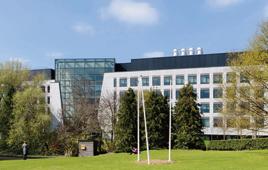




Ciara Cunningham, Graduate
UCD's reputation and wide range of amenities, clubs, and societies initially attracted me. However, my fascination with various scientific disciplines led me to discover the UCD Science course with diverse options in Biology, Chemistry, Physics, Mathematics, and Education. Motivated by a deep interest in people, pedagogical practices, and the intricacies of mathematical learning, I finalised my subject selection in Biology, Mathematics, and Education. This choice offered an all-encompassing STEM education experience, where the theoretical knowledge acquired during lectures served as the bedrock for implementing effective teaching methodologies. This pathway includes twoyear-long placements, and these significantly contributed to the development of my identity as a Mathematics and Science educator.
A key feature of the suite of Science, Mathematics and Education degrees are the professional work placements throughout the course.
In first and second year, you will get a taste of what it might be like to be a teacher, with short structured placements in Mathematics and Science education modules. In third year, you will participate in a Peer-Assisted Tutoring, tutoring first year undergraduate students and gaining insights into key aspects of learning in the transition from post-primary to third level education. In third year, you will also participate in a post-primary school placement in STEM over one term.
In fourth and fifth year, you will participate in a year-long school placement, with all undergraduate placements organised by the UCD School of Mathematics and Statistics. There are opportunities for paid summer internships with STEM companies in the summers after third, fourth and fifth year.





If you are interested in Chemistry and Mathematics, and think you might like to teach these subjects at post-primary level, then this degree subject may be for you. It is designed so that you study mathematics, chemistry and education in an integrated manner.
Chemistry, Mathematics & Education is one of the degree subjects in the Science, Mathematics & Education stream in the common entry Science course. Students study the modules required for the Chemistry, Mathematics & Education in first year and will study modules for a minimum of two degree subjects in second year. Students interested in Science, Mathematics & Education degree subjects also have the choice to pursue the modules required for degree subjects in other streams within the common entry Science course. Students study their degree major in third and fourth year which leads directly to a one-year MSc in Mathematics and Science Education. This is a sample pathway for Chemistry, Mathematics & Education. Students may also select option and elective modules throughout their degree.
YEAR 1
-Mathematics and Science Education and Communication
-Introductory Chemistry
-Organic Chemistry and Chemical Biology
-Linear Algebra
-Calculus
-Statistical Modelling
YEAR 2
-Key Ideas in Education
-Science and Mathematics Pedagogy
YEAR 3
-Teaching Second-Level Science
-Schools and Society
YEAR 4
-Pedagogical Approaches to Mathematics and Science
-Psychology for Teaching and Learning
YEAR 5
-Research Methods
-Professional Dissertation
-Year-Long Placement in Post Primary School
-Continuous Professional Development
*Modules are subject to change each year and are not guaranteed by UCD. In general, students have to decide on one stream to pursue in second year and will study two or more degree subjects from that stream. We do our best to ensure that students go on to study their top degree subject choice but if a degree subject is oversubscribed, places are allocated on a competitive basis.
After graduating with their BSc, students proceed to the MSc in Mathematics & Science Education. The complete five-year course is fully accredited by the Teaching Council of Ireland with graduates qualified to teach Chemistry and Mathematics to Leaving Certificate level. You can pursue other options after your BSc. For example, some of our students have progressed to PhD research or to the working environment.





Aisling Benson, Graduate
I was attracted to UCD for two reasons: the broad Science course and the incredibly active clubs and societies. The course coordinators care about your teacher training greatly, providing school placements in Years 3 and 4, and helping you to become an effective teacher. It is deeply rewarding and satisfying to help young people. I became actively involved in the UCD Dance Society competing nationally and serving as a committee member. Being part of a society is truly what makes the college experience special, and UCD offers over 80 of them!

A key feature of the suite of Science, Mathematics and Education degrees are the professional work placements throughout the course.
In first and second year, you will get a taste of what it might be like to be a teacher, with short structured placements in Mathematics and Science education modules. In third year, you will participate in a Peer-Assisted Tutoring, tutoring first year undergraduate students and gaining insights into key aspects of learning in the transition from postprimary to third level education. In third year, you will also participate in a post-primary school placement in STEM over one term.
In fourth and fifth year, you will participate in a year-long school placement, with all undergraduate placements organised by the UCD School of Mathematics and Statistics. There are opportunities for paid summer internships with STEM companies in the summers after third, fourth and fifth year.




If you are interested in Mathematics and Computer Science, and think you might like to teach these subjects at post-primary level, then this degree subject may be for you. It is designed so that you study mathematics, computer science and education in an integrated manner.
Computer Science, Mathematics & Education is one of the degree subjects in the Science, Mathematics & Education stream in the common entry Science course. Students study the modules required for the Computer Science, Mathematics & Education in first year and will study modules for a minimum of two degree subjects in second year. Students interested in Science, Mathematics & Education degree subjects also have the choice to pursue the modules required for degree subjects in other streams within the common entry Science course. Students study their degree major in third and fourth year which leads directly to a one-year MSc in Mathematics and Science Education. This is a sample pathway for Computer Science, Mathematics & Education. Students may also select option and elective modules throughout their degree.
YEAR 1
-Mathematics and Science Education and Communication
-Introductory Chemistry
-Organic Chemistry and Chemical Biology
-Linear Algebra
-Calculus
-Statistical Modelling
YEAR 2
-Key Ideas in Education
-Science and Mathematics Pedagogy
YEAR 3
-Teaching Second-Level Science
-Schools and Society
YEAR 4
-Pedagogical Approaches to Mathematics and Science
-Psychology for Teaching and Learning
YEAR 5
-Research Methods
-Professional Dissertation
-Year-Long Placement in Post Primary School
-Continuous Professional Development
*Modules are subject to change each year and are not guaranteed by UCD. In general, students have to decide on one stream to pursue in second year and will study two or more degree subjects from that stream. We do our best to ensure that students go on to study their top degree subject choice but if a degree subject is oversubscribed, places are allocated on a competitive basis.
After graduating with their BSc, students proceed to the MSc in Mathematics & Science Education. The complete five-year course is fully accredited by the Teaching Council of Ireland with graduates qualified to teach Computer Science and Mathematics to Leaving Certificate level. You can pursue other options after your BSc. For example, some of our students have progressed to PhD research or to the working environment.




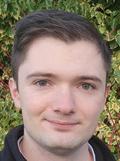
Conor Sievwright, Graduate
I had teaching at the back of my mind for a while, and the flexibility that came with choosing UCD Science gave me the time I needed to make sure that’s the path I wanted to take. By choosing Computer Science, Mathematics & Education, I could continue to study the subjects that I’m passionate about, while also training to be a secondary school teacher. I was attracted to this course for the blend of Mathematics and Computer Science that it offers, as well as the social aspects of school placements and learning how to teach. I particularly like the sense of community and the supportive environment in the programme’s education modules. The lecturers genuinely care about students’ learning and know all their students by their first names.
A key feature of the suite of Science, Mathematics and Education degrees are the professional work placements throughout the course.
In first and second year, you will get a taste of what it might be like to be a teacher, with short structured placements in Mathematics and Science education modules. In third year, you will participate in a Peer-Assisted Tutoring, tutoring first year undergraduate students and gaining insights into key aspects of learning in the transition from post-primary to third level education. In third year, you will also participate in a post-primary school placement in STEM over one term.
In fourth and fifth year, you will participate in a year-long school placement, with all undergraduate placements organised by the UCD School of Mathematics and Statistics. There are opportunities for paid summer internships with STEM companies in the summers after third, fourth and fifth year.




If you are interested in Physics and Mathematics, and think you might like to teach these subjects at post-primary level, then this degree subject may be for you. It is designed so that you study physics, mathematics and education in an integrated manner.
Physics, Mathematics & Education is one of the degree subjects in the Science, Mathematics & Education stream in the common entry Science course. Students study the modules required for the Physics, Mathematics & Education in first year and will study modules for a minimum of two degree subjects in second year. Students interested in Science, Mathematics & Education degree subjects also have the choice to pursue the modules required for degree subjects in other streams within the common entry Science course. Students study their degree major in third and fourth year which leads directly to a one-year MSc in Mathematics and Science Education. This is a sample pathway for Physics, Mathematics & Education. Students may also select option and elective modules throughout their degree.
YEAR 1
-Mathematics and Science Education and Communication
-Foundations of Physics
-Frontiers of Physics
-Linear Algebra
-Calculus
-Applications of Differential Equations
YEAR 2
-Key Ideas in Education
-Science and Mathematics Pedagogy
YEAR 3
-Teaching Second-Level Science
-Schools and Society
YEAR 4
-Psychology for Teaching and Learning
-Pedagogical Approaches to Mathematics and Science
YEAR 5
-Research Methods
-Professional Dissertation
-Year-Long Placement in Post Primary School
-Continuous Professional Development

*Modules are subject to change each year and are not guaranteed by UCD. In general, students have to decide on one stream to pursue in second year and will study two or more degree subjects from that stream. We do our best to ensure that students go on to study their top degree subject choice but if a degree subject is oversubscribed, places are allocated on a competitive basis. APPROVED
After graduating with their BSc, students proceed to the MSc in Mathematics & Science Education. The complete five-year course is fully accredited by the Teaching Council of Ireland with graduates qualified to teach Physics and Mathematics to Leaving Certificate level. You can pursue other options after your BSc. For example, some of our students have progressed to PhD research or to the working environment.




Hanna Biju, Student
I had trouble choosing the right course because I had so many interests; maths and physics, essay writing, public speaking, and children's development. I wanted a course that combined all these interests; then I found the Physics, Mathematics & Education degree in UCD Science. It combined all these areas and was the perfect fit for me. I encounter unique perspectives and ideas in every class. The structure of the course was also extremely appealing with plenty of time to think about our decisions. In UCD, I am currently part of the leadership committee for Draw Society, and I highly recommend everyone to get involved in clubs and societies.
A key feature of the suite of Science, Mathematics and Education degrees are the professional work placements throughout the course.
In first and second year, you will get a taste of what it might be like to be a teacher, with short structured placements in Mathematics and Science education modules. In third year, you will participate in a Peer-Assisted Tutoring, tutoring first year undergraduate students and gaining insights into key aspects of learning in the transition from post-primary to third level education. In third year, you will also participate in a post-primary school placement in STEM over one term.
In fourth and fifth year, you will participate in a year-long school placement, with all undergraduate placements organised by the UCD School of Mathematics and Statistics. There are opportunities for paid summer internships with STEM companies in the summers after third, fourth and fifth year.



Sustainability is a unique 4-year multidisciplinary course that combines the economic, environmental and social dimensions of sustainability, enabling specialisation in one of those dimensions complemented by knowledge and skills from the others. First year is structured so that students can progress into their preferred degree option in second year.


n Sustainability with Environmental Sciences
n Sustainability with Social Sciences, Policy & Law Degree Subjects
n Sustainability with Business & Economics
Q: Will there be an opportunity to complete an internship or study abroad?
A:Students will have the opportunity to study abroad as part of international internships with relevant industries and employers. Placements are secured through a competitive process. There will also be opportunities to apply for the Erasmus Study Abroad Programmes and there will be opportunities for overseas field trips.
Q: What could my career involve after graduating?
Core modules provide a global perspective on sustainability and include interdisciplinary research, a professional placement, field work in Ireland and Europe and engagement with leading researchers, advocates and practitioners.

4 Year Honours BSc Unique Multidisciplinary Course
A: Graduates will enjoy careers as consultants, managers and advisers in large organisations and private businesses. An interdisciplinary education in sustainability theory, policy and practice will equip you to work in areas such as renewables, clean technology management and energy efficiency, or advise industries on social and environmental strategies. Many opportunities also exist in organisations such as the UN, the European Environment Agency and the European Commission, and others.

Across the four years of this degree subject, you will develop interdisciplinary skills and knowledge on sustainability, spanning its environmental, societal and economic aspects. In this degree subject, there is a particular focus on science and technology to understand and address climate change and the degradation of our natural environment.
Sustainability with Environmental Sciences is one of the degree subjects available through the common entry Sustainability course. Students study a common first year for the three Sustainability degree subjects and at the end of first year, choose their degree major. Assuming students meet all the academic requirements, students are guaranteed their degree major, which they study in second, third and fourth year. Students may also select option and elective modules throughout their degree.
YEAR 1
-Introduction to Sustainability
-Sustainability Challenges
-Scientific Enquiry
-Statistics
-Cell Biology and Genetics
-Life on Earth
YEAR 2
-Sustainability: Research Tools
-Innovation, Communication and Careers in Sustainability
-Principles of Environmental Biology and Ecology
-Earth, Environment and Society
-Global Environmental Change
YEAR 3
-Sustainability in Action (field trip)
-Working with Biological Data
-Wildlife Conservation and Fisheries Management
-Life Cycle Assessment
-Sustainable Chemistry
-Waste Management
YEAR 4
-Environmental Assessment
-Advanced Air Pollution
-Global Change Ecology
-Energy Systems and Climate Change
-Marine Community Ecology
-The Urban Environment
*Modules are subject to change each year and are not guaranteed by UCD.
An interdisciplinary education in Sustainability theory, policy and practice will equip you to work in areas such as renewables, clean technology management and energy efficiency, or advise industries on social and environmental strategies. Many opportunities also exist in international organisations such as the UN, the European Environment Agency and the European Commission, government departments and state agencies such as the Environmental Protection Agency and the National Parks and Wildlife Service and in local authorities and Non-Governmental Organisations.






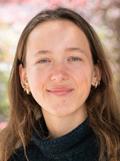
Hannah Kerr, Student
When choosing what to study at university, I didn’t want to limit myself to a specific field but knew I wanted sustainability to be my focus. Something that drew me to this course was the freedom of choice – in my first year, I’ve been able to take a range of interdisciplinary modules and discover interests I never knew I had. The Sustainability modules encourage us to think critically and apply a future-focused lens to the wide range of subjects we study. I can’t wait to delve deeper into my chosen degree subject of Environmental Sciences over the next few years and hopefully start a career that brings about positive change.
Students have the opportunity to complete a Professional Placement module worth 5 credits. This module provides students with an opportunity to undertake a placement in industry (6-10 weeks) in the summer following third year.
Students in recent years have completed internships in RPS Group, KPMG, Wind Energy Ireland and Environmental Consultants.
Placements are secured on a competitive basis and are subject to change each year.
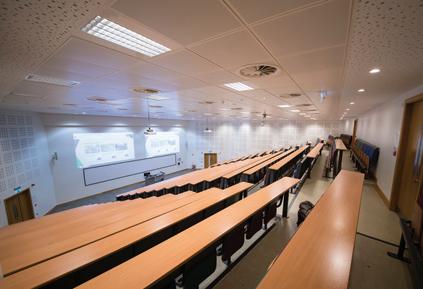


This degree subject focuses on the social, cultural, legal, governance and justice dimensions of sustainability. Progressing towards sustainability to ensure a healthy planet and human wellbeing requires significant societal adaptation and behavioural change.
Sustainability with Social Sciences, Policy & Law is one of the degree subjects available through the common entry Sustainability course. Students study a common first year for the three Sustainability degree subjects and at the end of first year, choose their degree subject. Assuming students meet all the academic requirements, they are guaranteed a degree major, which they study in second, third and fourth year. Students may also select option and elective modules throughout their degree.
YEAR 1
-Introduction to Sustainability
-Sustainability Challenges
-Mapping a Sustainable World
-Environmental Change and Policy
-People, Places and Regions
-Law in Europe
-Global Justice
-Societal Challenges in the 21st Century
YEAR 2
-Sustainability: Research Tools
-Innovation, Communication and Careers in Sustainability
-Introduction to GIS for Sustainability
-Education for a Sustainable Future
-Cultural Heritage
-Achieving the Sustainable Development Goals
-Cities in a Global World
-Law and Courts
3
-Sustainability in Action (field trip)
-Social Policy, Social Justice and the Environment
-Environment Law and Policy
-Environmental Management
-Sociology of Climate Change
-Global Risks and Resilience
-Applied Ethics
-Gender Inequality and Social Policy
YEAR 4
-The Urban Environment
-Development Geographies
-International Human Rights Law
-Tools for Sustainable Development
-Climate Politics and Policy
-Environmental Assessment
-Interdisciplinary Project
-Evidence-Based Policy Making
*Modules are subject to change each year and are not guaranteed by UCD.
Graduates from this degree subject will have highly developed analytical skills, methodological and research competency and the ability to deal with complex problems requiring interdisciplinary solutions. These attributes are in significant demand in the public and private sectors. For example, corporate businesses, private consultancy firms, banking and education, as well as civil society organisations, state agencies and transnational organisations such as the United Nations Development Programme, European Commission, Environmental Protection Agency, and Teagasc. Graduates will be well equipped to undertake further study at Masters and Doctoral levels in a range of disciplinary areas.







Kendra Paleczny, Student
I was really attracted to this course because it has the 3 pillars of sustainability (society, economy, environment) at its core, which was the only undergraduate course that offered this. In first year I learned interdisciplinary skills from all 3 pillars, which has really given me an edge going into second year, as I am able to see beyond my my degree subject and integrate the knowledge I have acquired from other fields, such as business and science. We are entering a new era, where every sector will need to be ‘climate-literate,’ especially the leaders of our countries. After I graduate, I would like to go into policy and law making for the EU, as I feel this is where I could make the most impact around climate change.
Students have the opportunity to complete a Professional Placement module worth 10 credits. This module provides students with an opportunity to undertake a placement in industry (6-12 weeks) in the summer following third year. Students in recent years have completed internships in An Post, EY, RPS Group, Nolan Transport, Sonairte and Dublin City Council.
Placements are secured on a competitive basis and are subject to change each year.



Sustainability is a way of thinking about the future in which environmental, social and economic dimensions intertwine. The Sustainability with Business & Economics degree subject shines a light on the business and economic dimensions of sustainability – understanding how systems and resources work, and building the knowledge, skills and practices of working with people and strategy to get things done.
Students study a common first year for the three Sustainability degree subjects and at the end of first year, choose their degree major. Assuming students meet all the academic requirements, students are guaranteed their degree major, which they study in second, third and fourth year. Each year has a range of interesting core (compulsory) and optional modules. Students may also select option and elective modules throughout their degree. Indicative modules included are as follows:
YEAR 1
-Introduction to Sustainability
-Sustainability Challenges
-Economics and Society
-Business in Society
-Business Plan
-Introduction to Economics
YEAR 2
-Sustainability: Research Tools
-Innovation, Communication and Careers in Sustainability
-Marketing: An Introduction
-Principles of Microeconomics
-Introduction to Quantitative Economics
-Introduction to Accounting
YEAR 3
-Sustainability in Action (field trip)
-Economics of the Environment
-Intermediate Microeconomics
-Irish Economy
-Business Across Borders
-Economic Policy Analysis
YEAR 4
-Green Ventures
-Behavioural Economics
-Responsible Marketing
-European Economy
-Entrepreneurship in Action
-Economics of Innovation
-The Urban Environment
*Modules are subject to change each year and are not guaranteed by UCD.
An interdisciplinary education in Sustainability theory, policy and practice will equip you to work in areas such as renewables, clean technology management and energy efficiency within organisations, or advise industries on social and environmental strategies. Many opportunities also exist in global professional service firms and consultancy, and international organisations such as the UN, the European Environment Agency and the European Commission, government departments and state agencies such as the Environmental Protection Agency and the National Parks and Wildlife Service and in local authorities and Non-Governmental Organisations.







Ellen Curran, Student
As someone with a keen interest in science and business, coupled with a passion for climate and social justice activism, Sustainability with Business and Economics is the perfect degree for me. The interdisciplinary nature of this programme broadens my knowledge base, fostering critical and systematic thinking skills crucial for addressing real-world sustainability challenges. I've had the opportunity to study a diverse range of modules from business in society, to earth science, and global justice. After graduation, to combine my interest in sustainability with my business management skills, I would like a career as a sustainability consultant, making this degree an ideal fit for my specific career goals. Despite the overwhelming global challenges, dedicating my education and future career to sustainability gives me hope that I can create positive change in the world.
Students have the opportunity to complete a Professional Placement module worth 5 credits. This module provides students with an opportunity to undertake a placement in industry (6-12 weeks) in the summer following third year. Placements are secured on a competitive basis and are subject to change each year.
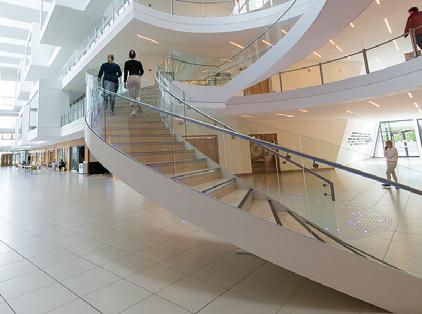

The Actuarial & Financial Studies course will prepare you for a professional career in the actuarial or financial professions.
Degree Subjects
n Actuarial & Financial Studies
The Actuarial and Financial Studies degree at UCD offers potential exemptions from the Core subjects CS1, CS2, CM1, CM2, CB1, CB2 and CP1 of the professional examinations of the Institute and Faculty of Actuaries, UK. Further information about becoming a fully qualified actuary is available on the Institute and Faculty of Actuaries, UK website at actuaries.org.uk/become-an-actuary.
Students have completed their work placement in a variety of companies and locations. The companies include Allianz, Aon, Deloitte, Irish Life, Mercer, Susquehanna (SIG) and Zurich. The locations include Dublin, London, Boston and New York. There is a wide choice of placements that last for 6-8 months, and these are secured through a competitive process.



Q: How long does it take to become a qualified actuary?
A:Students must successfully complete professional exams and complete a work-based skills framework with their employer which includes a Learning Log. The exams are held twice a year. It typically takes 3 to 6 years to complete the exams, depending on the extent to which you can claim exemptions on the basis of relevant third-level qualifications.
Q: Where can I find out more information about the actuarial profession?
A: The Society of Actuaries in Ireland is the professional body representing the actuarial profession in Ireland. The Society is dedicated to serving the public by fostering the highest standards of professionalism and competence in actuarial practice.
Further information on the actuarial profession in Ireland is available on the Society of Actuaries website at web.actuaries.ie

As part of your studies, you will learn how actuaries understand the nature of risk and find ways to manage it. You will also develop the analytical skills and business knowledge necessary to design and manage programmes that control risk for the insurance and pension sectors.
This is a sample set of modules that an Actuarial & Financial Studies student could study each year in UCD. Students may also select option and elective modules throughout their degree.
YEAR 1
-Introduction to Programming
-Foundations of Finance
-Numbers and Functions
-Linear Algebra
-Introduction to Analysis
-Introduction to Actuarial and Financial Studies
-Financial Accounting
-Differential and Difference Equations
-Advanced Calculus
-Statistical Modelling
-Fundamental Actuarial Business Theory
YEAR 2
-Corporate Financial Management
-Fundamental Actuarial Mathematics
-Introduction to Probability
-Professional Ethics
-Modern Regression Analysis
-Economic History
-Inferential Statistics
-Introduction to Bayesian Analysis
YEAR 3
-Investing and Trading
-Stochastic and Survival Models
-Time Series Analysis
-Information Management for Actuaries
-Workplace Skills
-BAFS Professional Work Placement (at least 6 months)
YEAR 4
-Actuarial Statistics
-Core Actuarial Principles
-Financial and Actuarial Mathematics
-Actuarial Mathematics
-International Financial Management
-Statistical Machine Learning
*Modules are subject to change each year and are not guaranteed by UCD.
Actuaries have traditionally worked in the insurance and pensions industries but are increasingly moving into wider fields, where they can employ their range of skills. Most graduates take positions as actuarial trainees in life insurance, pensions, health insurance, general insurance or investment. Some graduates also work in banking or finance as business or financial analysts. As an Actuarial & Financial Studies graduate, you are also eligible to pursue graduate study in statistics, computer science, economics, mathematics, management science, finance and other specialist business subjects.






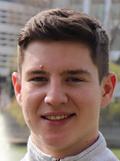
Hugh Quigley, Graduate
I really enjoyed maths in school and problem solving has always been fun for me. However, I did not know exactly what type of career I wanted. This course is great as it covers a range of topics from actuarial to financial to data science using a hands-on approach, applying what you learn in class to real world scenarios. What I enjoyed the most was my work placement in third year. While the majority of students work in insurance companies, I took a different route and did my placement in an investment bank. First-hand industry experience is so important, and I plan on following this path after I graduate. The Actuarial and Financial Society in UCD is also great as they sponsor events throughout the year such as the Actuary Pub Quiz and the Actuary Ball.
Students complete an internship in the Spring Trimester of third year. There is a wide choice of placements that last for 6-8 months, and these are secured through a competitive process.
Students have completed their work placement in a variety of companies and locations. The companies include Allianz, Aon, Deloitte, Irish Life, Mercer, Susquehanna (SIG) and Zurich. The locations include Dublin, London, Boston and New York.
The internships listed are examples of past placements and are subject to change each year.
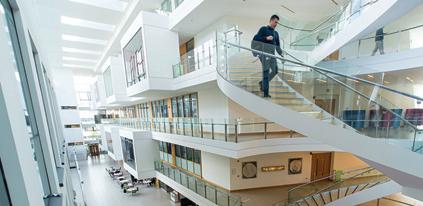


The Computer Science course is for students who are interested in specialising in Computer Science or Computer Science with Data Science and are interested in a career in software engineering, data analytics, working in the ICT sector and in research and development.
Degree Subjects
n Computer Science
n Computer Science with Data Science
This course covers computation and information, programming and software engineering, networks, database, operating systems, security and data science. The focus is on the fundamentals of the field, coupled with the latest technologies that will make your knowledge and skills immediately relevant in the industry.

Q: What is Data Science?
A:Data science is about extracting insights from data that can transform the way a company operates. For example, understanding data can match millions of businesses with new customers around the world in the areas of advertising and e-commerce.
Q: Do I need to have prior experience of programming?
A: No. Computer Science is suitable for students with or without previous programming experience. There is no assumption that students have prior programming experience and all students will take introductory programming modules in first year.
Q: Where can I practice programming?

A: There are many excellent resources available online to try out programming and Computer Science. Beginners can use resources such as MIT’s Scratch or Greenfoot. Students looking to advance their knowledge can also use resources such as Coursera and edX to sample free online courses in Computer Science.


As part of your studies, you will learn the fundamentals of computation and information, develop programming skill in languages such as C, Java and Python, and learn about software engineering, mobile application development, networks, database technology and operating systems. There will also be opportunities for industry internships.
Computer Science is one of the degree subjects available through the common entry Computer Science course. The UCD Computer Science degree covers the fundamentals of Computer Science while also exposing students to the contemporary languages and technologies used in the industry. Key topics include programming, foundational mathematics, advanced software engineering, cloud development, theory of computer science, networks and security. The principal programming languages used are C, Java and Python. Specialised topics include computer graphics, game development, robotics, mobile development and others. Students may also select option and elective modules throughout their degree.
YEAR 1
-Algorithmic Problem Solving
-Computer Programming
-Introduction to Computer Architecture
-Formal Foundations
-Software Engineering Project I
-Statistics with Python
YEAR 2
-Computer Networking
-Data Structures and Algorithms
-Object-Oriented Programming
-Discrete Mathematics
-Software Engineering Project II
YEAR 3
-Foundations of Computing
-Multi-Paradigm Programming
-Software Engineering Project III
-Introduction to Artificial Intelligence
-Information Security
-Web Development
YEAR 4
-Computer Science Project
-Spatial Information Systems
-Distributed Systems
-Advances in Wireless Networking
-Cloud Computing
-Mobile App Development
*Modules are subject to change each year and are not guaranteed by UCD.
A UCD Computer Science degree equips you with the fundamental skills to work in a variety of roles including software developer, software architect, engineering manager, database designer, web developer, network engineer, systems administrator or IT consultant. Graduates work in a wide range of domains including internet, telecommunications, healthcare, finance, online retail, gaming and social networking. Some graduates start their own companies, even immediately after graduating. Graduates can also pursue further study in computer science and in related areas, such as business, mathematics and engineering. Graduates also pursue research in computer science through PhD programmes in UCD or other institutions.




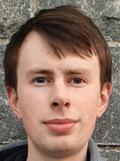
Thomas Creavin, Graduate
This course offers a fascinating range of modules on every aspect of Computer Science. The opportunities to get involved with clubs and societies were fantastic. Through Netsoc, I made many new friends and contacts by attending and organising events. The highlight of my time here was hosting the SISTEM tech conference at UCD. In third year, I had the chance to undertake a six-month software engineering internship at Amazon. It was a wonderful experience to apply my studies in a practical setting and receive invaluable mentorship from my teammates. This even led to me being hired as a full-time software engineer by Amazon, where I work on new and exciting problems every day.
Students have an opportunity to undertake an industry placement for 5.5 months in third year from March to August. Assessment is based on a learning journal and a presentation from the student.
Students who do not undertake the longer internship option also have the opportunity to complete a Professional Placement module worth 5 credits. This module provides students with an opportunity to undertake a placement in industry (6-10 weeks) in the summer following third year.
Students in recent years have completed internships in Ericsson, SIG, KPMG, Workday, Yahoo, Microsoft, General Motors, Intel, Deloitte and AMD.
Placements are secured on a competitive basis and are subject to change each year.



As part of your studies, you will learn key skills to demonstrate basic knowledge and understanding of the fundamentals of data science. You will also develop the technical depth and the practical experience that you will need to stand out in an increasingly demanding marketplace.
Computer Science with Data Science is one of the degree subjects available through the common entry Computer Science course. This degree follows the same first two years as the BSc in Computer Science, which will give you an excellent foundation in Computer Science and Mathematics. The in-depth focus on Data Science begins in Third Year, when you will study Statistics, Data Management and Data Analytics. The aim is to provide the technical depth and the practical experience that you will need to stand out in an increasingly demanding market place. Modules will include hands-on experience with contemporary data science tools such as Hadoop, NoSQL, Python, SciPy, SciKit.Learn, Matplotlib, Numpy and Pandas. This is a sample pathway for a degree in Computer Science with Data Science. Sample topics include Machine Learning, Probability Theory, Introduction to AI, Data Science in Python, Data Mining, Information Visualisation, Programming for Big Data, and Deep Learning. Students may also select option and elective modules throughout their degree.
YEAR 1
-Algorithmic Problem-Solving
-Computer Programming
-Introduction to Computer Architecture
-Formal Foundations
YEAR 2
-Computer Networking
-Data Structures and Algorithms
-Object-Oriented Programming
-Discrete Mathematics
YEAR 3
-Data Science in Python
-Probability Theory
-Introduction to Artificial Intelligence
-Network Analysis
-Data Science in Practice
-Industry Internship
YEAR 4
-Generative AI
-Data Science Project
-Machine Learning
-Deep Learning
-Data Mining
*Modules are subject to change each year and are not guaranteed by UCD.
Graduates with training in Computer Science with Data Science work in fields such as banking and financial services, consultancy (e.g. Accenture, Deloitte, PwC), Internet companies (e.g. Google, PayPal and Meta), established ICT companies such as IBM, Microsoft and Intel; or in ICT Start-ups. Graduates can also pursue a range of MSc or PhD programmes such as the MSc Computer Science (Negotiated Learning), MSc Business Analytics or MSc Cognitive Science.






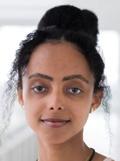
Kalkidan Dessie, Student
The Computer Science with Data Science degree offered a comprehensive blend of theoretical knowledge and practical skills, making it the perfect fit for my interests and career aspirations. I have been a member of various UCD societies such as Netsoc, Women@compsci, Food Society and many more. This has allowed me to develop leadership skills and form connections with students who share my interests. After graduation, I aspire to work as a software developer in a leading tech company. I completed my first internship with SAP during my third year. This was a six-month internship and it provided me the opportunity to explore what it is like to work in a professional environment as well as learn what the day-to-day life would look like in the workplace. Additionally, after finishing my fourth year, I completed a summer internship with Intel.
Students have an opportunity to undertake an industry placement for 5.5 months in Third Year from March to August. Assessment is based on a learning journal and a presentation from the student.
Students who do not undertake the longer internship option also have the opportunity to complete a Professional Placement module worth 5 credits. This module provides students with an opportunity to undertake a placement in industry (6-10 weeks) in the summer following third year.
Students in recent years have completed internships in Bank of America, Amazon, Stripe, Hubspot, SAP, Deloitte, AIB, Zurich Insurance, Optum and Viasat.
Placements are secured on a competitive basis and are subject to change each year.



At UCD each student will have their own individual timetable based on their module selection. Students complete 60 credits per year in an undergraduate degree and for most years this involves completing 12 modules. Most modules are worth 5 credits. This includes core, option and elective modules. All undergraduate degrees are full-time courses with classes taking place Monday to Friday from 9am to 6pm.
A typical timetable in first year will have 20-30 hours of classtime per week. The classes may include lectures, practicals and tutorials, depending on the course and degree subject. The following is a sample timetable based on the choices of a second year Science student.

*This example is based on a timetable for the Autumn Trimester for a student in second year Science meeting the requirements for Biochemistry & Molecular Biology and Microbiology. This student is completing 30 credits in this trimester (6 modules).
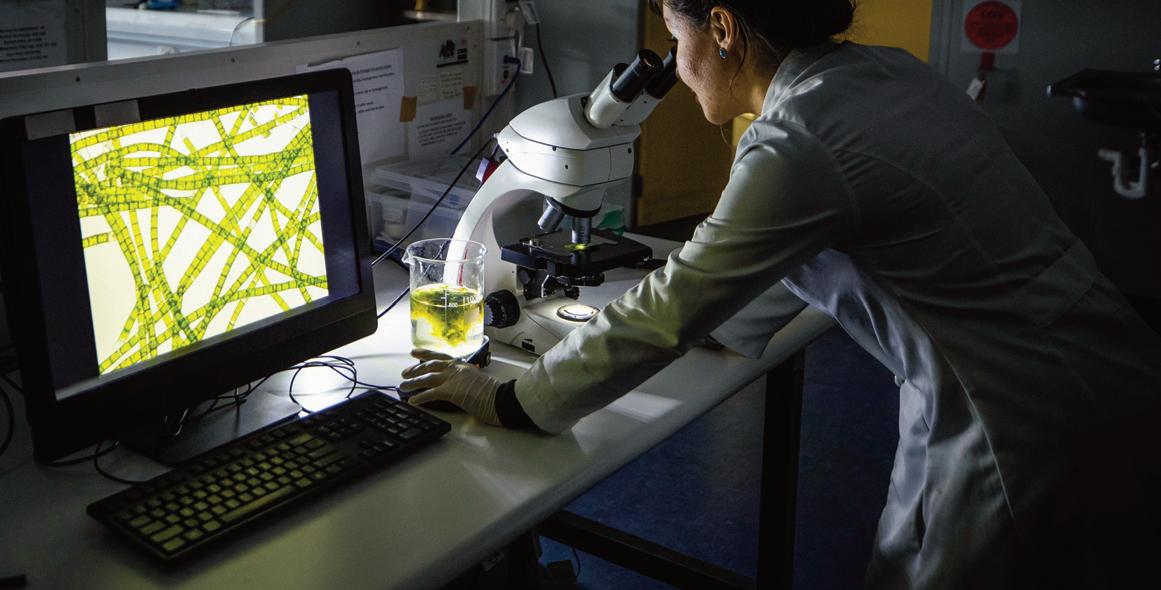
Internships in industry or in academia are an opportunity to develop your skills and give a valuable insight into the careers available. They also provide an opportunity to build your network and learn about graduate programmes.
The UCD Careers Network provides resources and help for students interested in an internship. In addition, there are internship fairs held throughout the academic year and a number of CV clinics.

Within the UCD College of Science, there are dedicated internship managers who provide support throughout the placement process.
Applying for an internship is similar to applying for a job. It is a competitive process and is not guaranteed.
You can read more about the internships available on the relevant degree subject pages.
Plan Your Career Path
First Year – Get Involved
n Visit the UCD Careers Network in your first year. UCD Careers Network joins the dots between your time at university and your future career.
Second and Third Year
– Explore Your Career Options
n Consider the elective module “Prepare for Your Career”.
n Contact Internship Managers to express an interest in a placement.
n Develop a CV and cover letter.
Fourth Year
n Research job opportunities and graduate studies.
n Attend Career Fairs organised by UCD Careers Network or at GradIreland.
n Check all deadlines for PhD funding opportunities and for MSc courses.






n The Professional Placement module worth 5 credits provides students with an opportunity to undertake a placement in industry for 6-10 weeks in the summer following Third Year in a range of disciplines in Science, Computer Science and Sustainability. Sample placements are available on each degree subject page.
n The option to complete a 6-month Industry Research Project worth 25 credits is available to students in Biochemistry & Molecular Biology, Genetics, Microbiology, Pharmacology, and Neuroscience.
n A Geoscience Work Placement module worth 5 credits is available for Earth Sciences students in the summer between Second and Third Year.
n Computer Science and Computer Science with Data Science students also can also undertake a 5-month industry placement in Third Year worth 15 credits.
n The Actuarial & Financial Studies course has a 6-month professional placement in Third Year where students have the opportunity to work in industry.

Am I guaranteed an internship if I apply for one?
All placements are secured on a competitive basis. Students will submit an application and attend interviews. As such, we cannot guarantee that every student who seeks an internship will succeed in securing a placement.
What help is available?
UCD Science has two dedicated internships managers who prepare students for the application process, which is competitive in the same way as applying for a graduate course or your first job. It is important to engage with your Internship Manager to get support with your applications and to learn about the options available to you.
Over the last number of years, students have completed internships in companies including, HubSpot, Workday, SAP, SIG plc., Alexion, APC Ltd., KPMG, EY, Marine Institute, Enviroguide and many more. Examples for each discipline can be found on the relevant degree subject page.
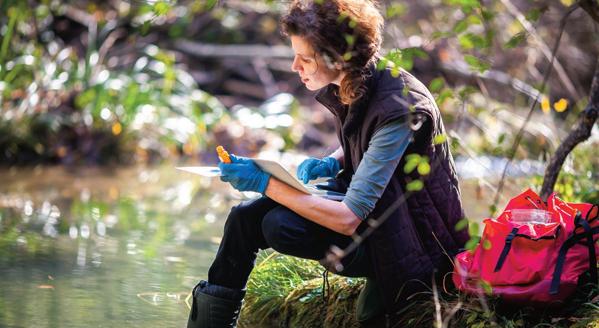

The following are some terms that you will come across when researching courses in UCD.

BSc
Bachelor of Science
BAFS
Bachelor of Actuarial and Financial Studies
Degree Subject
Examples of degree subject areas are Microbiology, Physics with Astronomy & Space Science or Chemistry. In Science, your degree will eventually be in one of 26 different subjects.
Entry Requirements
The minimum standard in order to be eligible for consideration for admission.
Common Entry
A common entry programme has a single entry point for multiple potential degree options.
Stage
A student progresses through an undergraduate programme in stages. For full-time undergraduate students, a 60-credit stage will normally be completed in one academic year.
The academic year in UCD is divided into Trimesters (Autumn, Spring, Summer). Undergraduate degree teaching takes place in the Autumn Trimester (September to December) and the Spring Trimester (January to May). This is normally 15 weeks of student activity: 12 weeks of teaching and learning, one week of revision and two weeks of revision and assessment.
Each grade has a number associated with it, called a grade point. When you have completed all the modules of a Stage, all your grade points are averaged to get a Grade Point Average, or GPA, for that Stage.
Streams are used to categorise the 26 different degree subjects available in the common entry Science Course. By meeting the requirements of a particular stream in first year, the subjects within that stream remain available to choose in second year. The streams available are as follows:
n Biological, Biomedical & Biomolecular Sciences
n Earth & Environmental Sciences
n Chemistry (includes Medicinal/Sustainable)
n Mathematics (includes Applied/Financial/Statistics)
n Physics (includes Theoretical/Astronomy & Space Science)
n Science, Mathematics & Education
Students interested in degree subjects from more than one stream can select Explore Multiple Streams
Module
A self-contained unit of teaching and learning, which is usually studied over one Trimester. Undergraduate modules are normally 5 credits. A standard 5-credit UCD module represents 100-125 hours of student effort including time spent in class, studying and assessment. Modules in UCD are divided into core, option and elective modules.
Core Module
A compulsory module that you must do as part of your programme. You will usually be pre-registered to these modules.
Option Module
A module that is part of your programme but is not compulsory. You will be given a list of option modules to choose from when you register online.
Elective Module
As well as Core and Option modules, you can study Elective modules that either deepen your knowledge in your chosen programme or allow you to explore subjects outside of your area of study. For example, a student in Computer Science could take a Business or Language module.
Timetable
Each student will have their own personalised timetable based on their individual module selection. The timetable will be filled with a variety
Orientation
To help you settle into life at UCD, orientation events are organised for new students prior to the start of term. This includes important academic advice as well as extra-curricular activities to help you settle into life at UCD.
UCD's student societies are a great way to explore your interests or develop new interests. From arts and culture to science and social service, you can find the community that aligns with your passion. An example is the UCD Science Society (SciSoc). SciSoc is one of UCD's biggest societies and it is responsible for a range of events
of class types such as lectures, practicals, tutorials etc. An average first year timetable will have 20-30 hours of class time per week including lectures, practicals and tutorials. A sample timetable is on page 47.
Practical (or laboratory) classes involve carrying out selected experiments, examining scientific material and getting hands-on experience of practical subjects. They generally take place in the afternoons and are of two-to-three hours duration.
Tutorials generally take place in a classroom with a smaller group size than lectures. They provide an opportunity to explore and apply the concepts, skills and competencies in a manner that is not usually possible in larger classroom environments.
This is a standard way of representing the amount of student effort, the achievement of learning outcomes and educational activity associated with a module. UCD utilises the European Credit Transfer System (ECTS). The ECTS was developed to facilitate educational mobility for students and inter-institutional cooperation amongst higher education institutions within the European Union.
such as the annual "Cycle to Galway", Science Day festival, the Science Ball and many more.
Peer Mentors are students in Stage 2 or 3 who very generously give of their time to help welcome and support Stage 1 students. Students are introduced to their Peer Mentor during Orientation.
UCD sports clubs are at the centre of student sport. Clubs provide a range of opportunities to train, play and compete in sport, no matter your passion, ability or level.



UCD Science
Mr Gary Dunne +353 1 716 2637 askscience@ucd.ie
Dr Orla Donoghue +353 1 716 2311 askscience@ucd.ie
This booklet (Version 1.0 Entry 2025) is intended to assist prospective UCD students, and the information is given in good faith. It is not, however, an official publication of the university and does not bind the university in any way. The information provided in this booklet is correct at the time of going to press but degree programmes are subject to continuing development and the university reserves the right to make changes at any time, before or after a student’s admission.

Ms Amanda Prinsloo +353 1 716 2687 askscience@ucd.ie
www.ucd.ie/science Find us on social media @UCDScience
This product is made of material from well-managed, FSC®-certified forests and other controlled sources.
